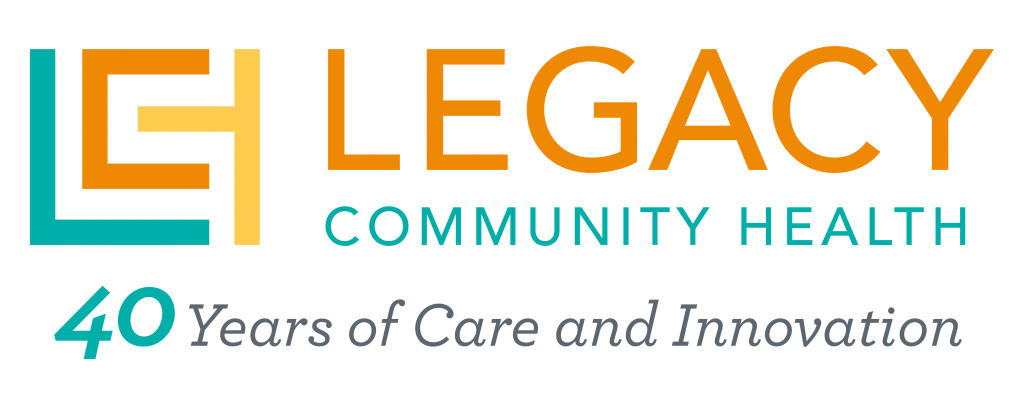 We welcome you to join us in celebrating Legacy Community Health’s 40 years of care and innovation!
We welcome you to join us in celebrating Legacy Community Health’s 40 years of care and innovation!
Forty years ago, the collaborative fight to end the HIV/AIDS pandemic began. Here in Houston, that fight led to the creation of the Montrose Clinic, which grew to become Legacy Community Health, the largest federally qualified health center (FQHC) in the Southeast. While the past 40 years have been filled with challenges and triumphs, nothing has stopped our joint commitment to ending the HIV/AIDS pandemic – and to providing quality care to communities that are often overlooked.
Beginning in September and continuing through December, we will share stories of some of the people and organizations that have played a role in our collective journey. Through these stories, we’ll pay tribute to those we have lost, acknowledge the hard work and innovation of many, and celebrate the strides taken to ensure we continue to provide quality care to the communities we serve.
We’re calling it The Power of 40.
Thank you to all who have been a part of our journey. We are truly grateful.
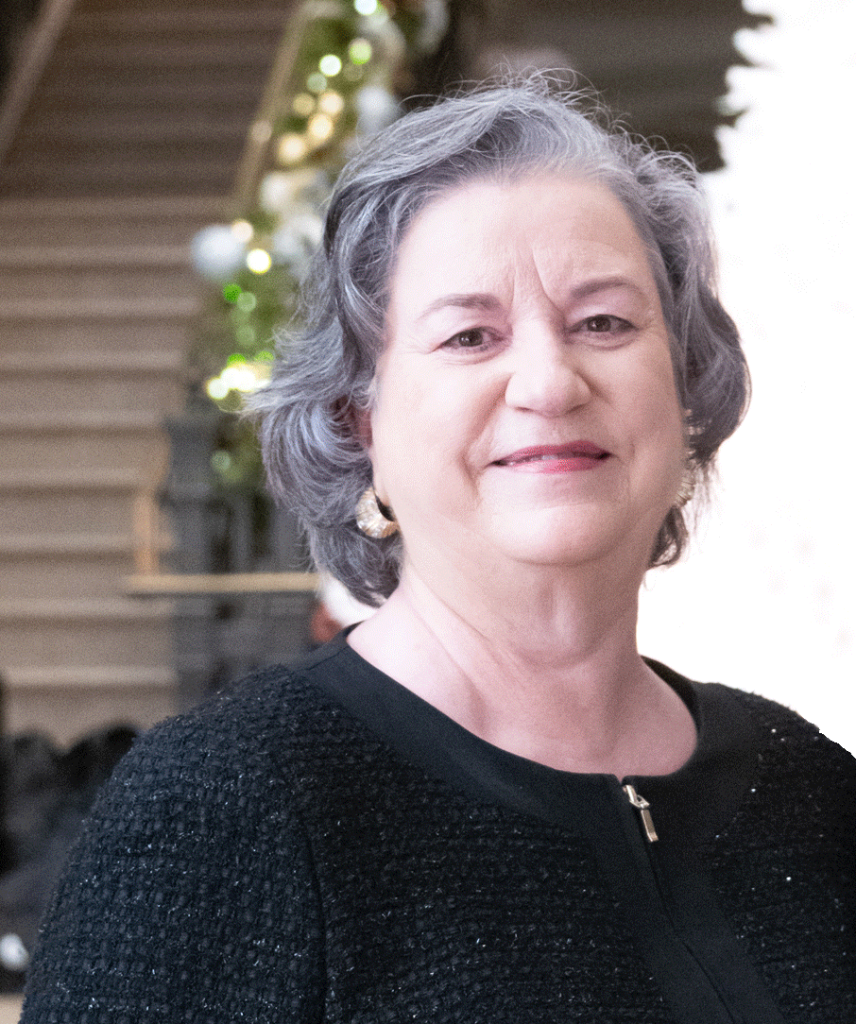
Katy Caldwell
Executive Advisor,
Legacy Community Health
Katy Caldwell
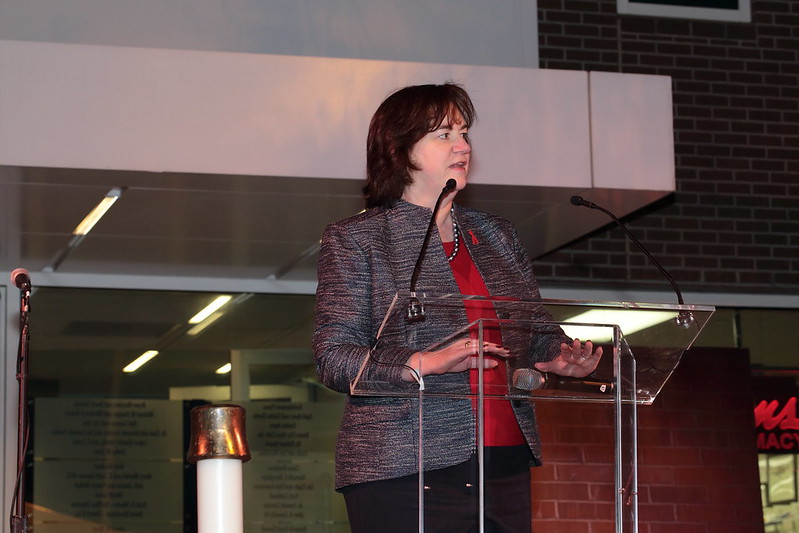
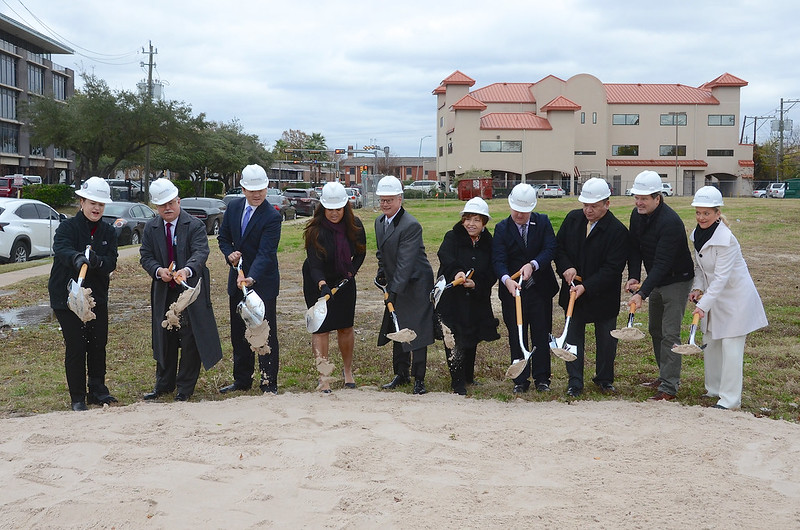
Top: Katy Caldwell speaking at Legacy’s World AIDS Day Vigil, 2016
Bottom: Katy Caldwell with community leaders at groundbreaking for the new Sharpstown clinic, 2018
According to her grandmother, Katy Caldwell attended more funerals than her during the 1980s and 1990s. A staunch ally to the LGBTQ+ community, the HIV/AIDS pandemic hit close to home for the University of Houston graduate and Montrose Clinic board member.
Caldwell’s involvement with the HIV/AIDS pandemic began when she became a part of Colt 45, a group that would panhandle for money in gay bars to pay the rent and utilities of those living with HIV/AIDS. These efforts helped keep people afloat and make them comfortable through palliative care during their last days of life.
Caldwell’s passion for the community led her to run for County Treasurer in the 1990s. Following her term as County Treasurer, Montrose Clinic approached her to step in as its executive director. The board knew her financial, business and government experience would be an ideal fit for the organization—especially at a time when the clinic was struggling financially. Caldwell agreed to accept this position in 1996, thinking she would do the job for a few years and run for office again.
With Caldwell at the helm, Montrose Clinic became one of seven HIV care organizations across the country that collaborated with one another, all with female executive directors, collectively known as the “Seven Sisters.” It was this group that created a longer-term financial strategy for cash-strapped HIV organizations.
It was during one pivotal meeting that Caldwell decided to bring up a new idea to Montrose Clinic’s Board of Directors. At the time, there was a dire need to consider growth options for the organization’s survival. She proposed changing the clinic’s business model to transform it from a facility that provided only HIV services to one that provided comprehensive health services to the entire community.
To take this step, Montrose Clinic would become a Federally Qualified Health Center (FQHC). Trusting Caldwell’s leadership, the board of directors voted in favor of the transition. This watershed moment set Montrose Clinic on a new path, allowing us to immediately expand and improve services to LGBTQ+ Houstonians and patients living with HIV, to where we are today, providing comprehensive care to communities across Southeast Texas
Following the 2005 merger between Montrose Clinic and The Assistance Fund, a Houston-based nonprofit that helped to pay for insurance premiums and medications for those living with HIV or AIDS, Legacy Community Health was born, providing quality care regardless of income. Becoming an FQHC meant Legacy could access federal funds to care for additional community members. Services expanded to include adult and pediatric primary care, dental and vision.
Under Caldwell’s leadership, Legacy Community Health has grown from a small volunteer clinic in Montrose to the largest FQHC in Texas, with locations across southeast Texas serving nearly 200,000 patients annually. In 25 years, Legacy has become a successful, multifaceted health care system serving a diversity of patients.
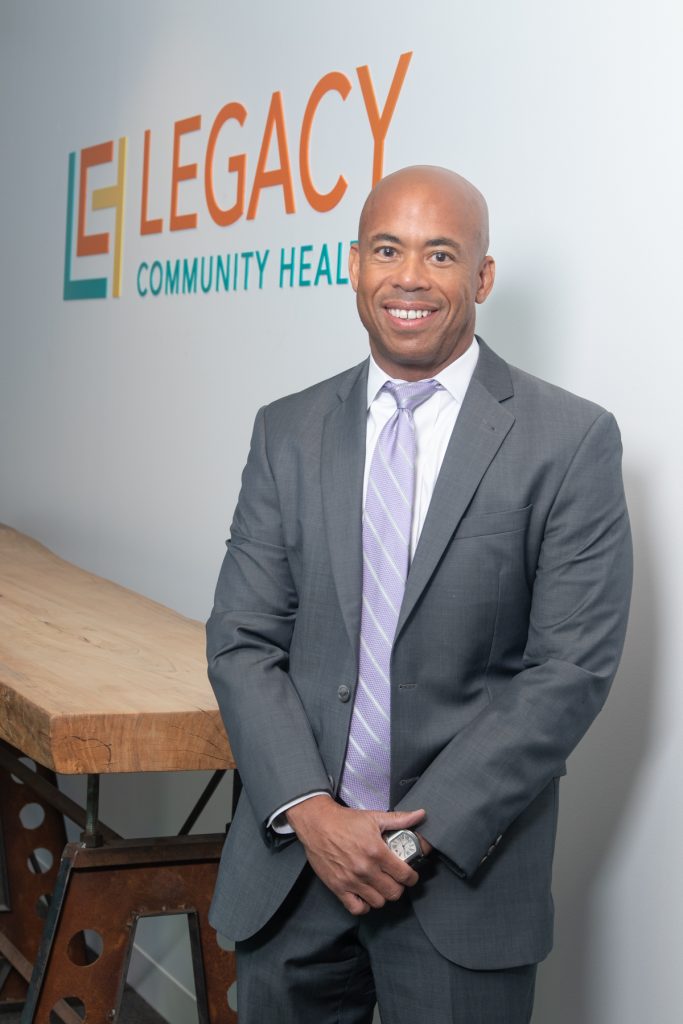
Dr. Robert “bobby” Hilliard, Jr.
CEO,
Legacy Community Health
Dr. Robert “Bobby” Hilliard, JR.
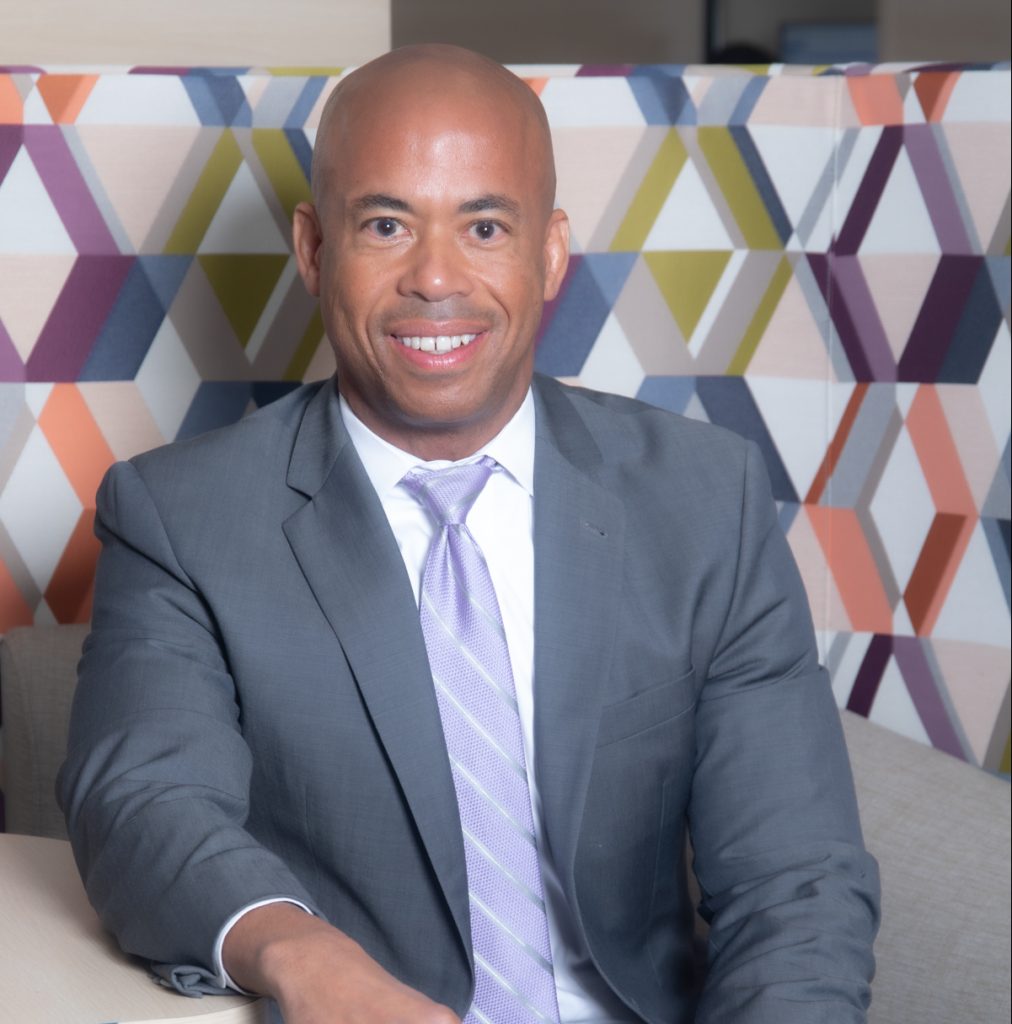
Dr. Robert Hilliard, Jr. is a family man who lives with his partner, two children and two dogs Repo and Bubbles. He’s a third-generation Texan who comes from a family of healthcare providers – caring for populations in need has been a driving force in his life. . When Legacy CEO Katy Caldwell announced her retirement from the organization after 25 years of leadership, it was Dr. Hilliard – or “Bobby” – a former long-time Legacy board member, who stepped in to guide the organization through its next chapter.
He’s no stranger to service in the medical field: Before joining Legacy as the new CEO, Dr. Hilliard served as Executive Director and Chief Medical Officer of Altus ACE, a provider-owned Accountable Care Entity startup. Prior to Altus, Dr. Hilliard served as the President of WellCare Health Plans, Inc. of Illinois, the Chief Operating Officer of UnitedHealthcare Community and State Plan of Texas, Chief Medical Officer of Molina Healthcare of Texas, and as the Regional Medical Director of the Western Commercial Markets of Humana. To say that Dr. Hilliard’s reputation precedes him would be an understatement.
Dr. Hilliard, a Diplomat with the American Board of Obstetrics and Gynecology in both Texas and California, is a third-generation physician. An avid advocate for underserved populations, Dr. Hilliard has dedicated his career to helping those in need access health care in this country, a tenet that he carries over into his new venture as the CEO of Legacy Community Health.
Though his journey as Legacy’s new CEO is just beginning, the unmistakable motivation to drive healthy change in our communities remains strong under his new leadership.
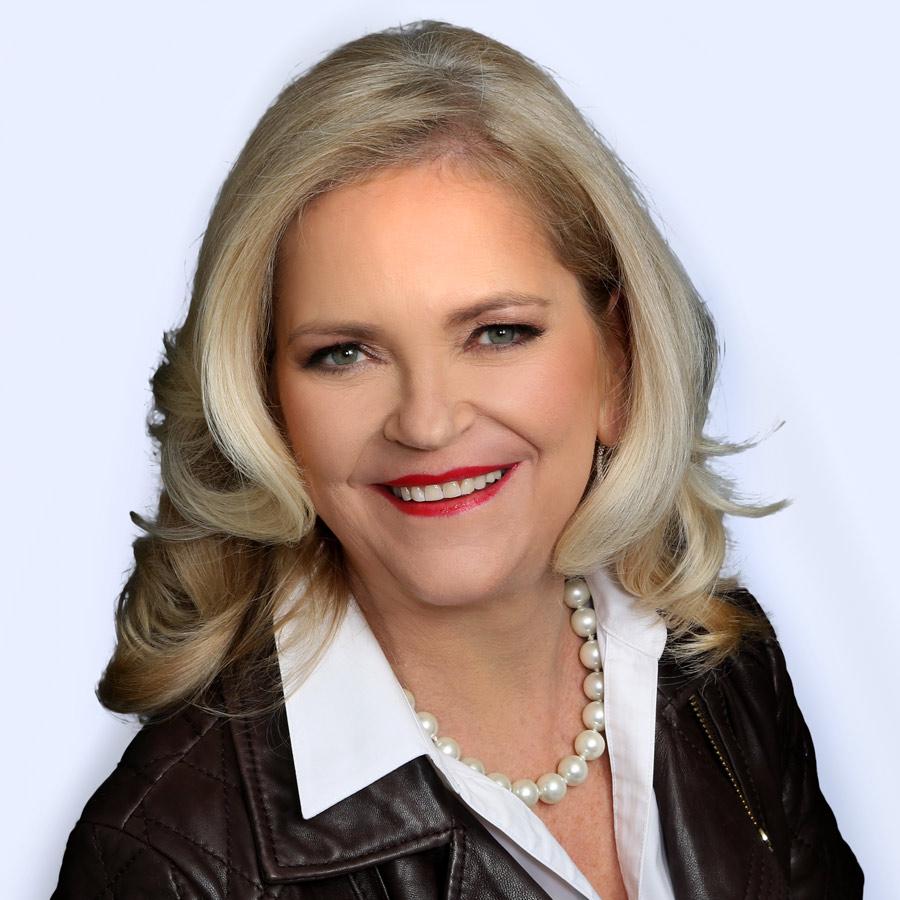
Chree Boydstun
Chief Development Officer
Chree Boydstun

Long before Chree Boydstun became the Chief Development Officer of Legacy Community Health, she had been a supporter of what was then known as the Montrose Clinic and its work for people living with HIV/AIDS.
“I always admired CEO Katy Caldwell’s leadership and what she was doing for the LGBTQ+ community. She had a vision to deliver services and treatment to everyone, regardless of their ability to pay, and that meant the Montrose Clinic needed to become a Federally Qualified Health Center,” recalls Boydstun. “So when the CDO position came open in 2007, I knew I wanted to be part of the future Katy was creating for Legacy.”
Boydstun led the $15 million capital campaign for a new building that would consolidate three locations into one centrally-located clinic. “I knew the need was there because HIV and AIDS affected my life personally through my family and friends,” she says. “We wanted to create a health care home made for the LGBTQ+ community in Montrose – the neighborhood where the organization started all those years ago, and a place they could come home to.”
Legacy Montrose opened its doors in 2011, and only two years later Boydstun launched a second $15 million campaign for a new clinic in the Gulfton area. “People still thought of us as an LGBTQ+ clinic, but we were so much more,” she remembers. “We built a pediatric clinic in the densest population in the city of Houston. And the whole community, LGBTQ+ included, helped us because they knew how important it was for young people and families to have quality health care.” Legacy’s new Southwest Clinic opened in 2019, replacing a facility that could no longer fit the area’s diverse needs.
Boydstun is also proud to be part of the largest gift ever made to Legacy: a $50 million dollar donation in December 2021 from Houston Methodist. It will fund two new capital projects and provide operating funds for Legacy clinics in North Houston and Pasadena. “Houston Methodist has partnered with us for 24 years and helped us grow in so many ways,” says Boydstun. “To know that Houston Methodist is investing in Legacy’s ability to expand to these communities and provide comprehensive health and wellness services to those that need it most is absolutely heartwarming.”
Plans are already underway for a capital campaign to build a third clinic in Beaumont. “I’m fortunate that I go to work every day with an incredible team that is as passionate about this job as I am,” says Boydstun. “Katy Caldwell used to say ‘We’ll never be finished until there’s a clinic in every community that needs one,’ and I still live by that motto today. “
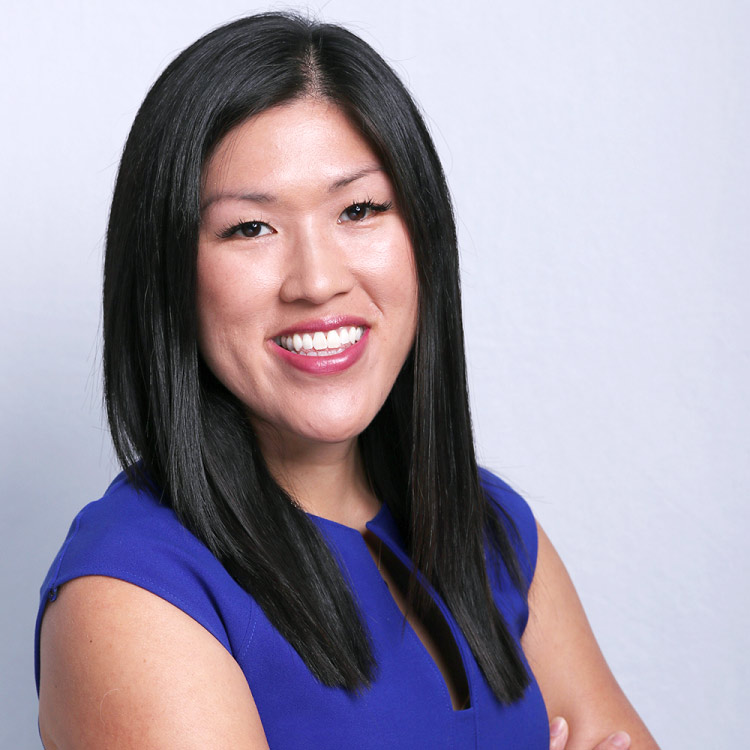
Dr. Vian Nguyen
CHIEF MEDICAL OFFICER
Dr. Vian Nguyen

Dr. Vian Nguyen, joined Legacy in 2015 as the Medical Director of Obstetrics and Gynecology, and was named the Chief Medical Officer in September 2019. Dr. Nguyen is a board-certified OB/GYN who trained at Baylor College of Medicine and completed her OB/GYN residency at Baylor-affiliated Methodist Hospital in Houston.
“OB-GYN is an amazing field that allows you to see so many different patients. I’m seeing women through so many different stages of their lives and it is a very satisfying thing to be able to do,” said Dr. Nguyen.
That may have been most obvious in August 2017 when Hurricane Harvey stalled over the Greater Houston Area. Our city was crippled by an unheard of 51 inches of rain. During the flood, one of Dr. Nguyen’s pregnant patients called in, having gone into labor, but ambulances were unable to reach her. Dr. Nguyen sprang into action and directed the patient’s husband on how to deliver the patient’s healthy baby over the phone.
“I feel like teaching women that taking care of themselves can really help them take care of everything else. And if we don’t take care of ourselves it effects how we are as moms, as sisters, as co-workers. And I feel like just empowering that can really change the world.”
Dr. Nguyen’s commitment to Legacy’s diverse patient population has continued through the COVID-19 pandemic. In 2020, she guided the organization into becoming one of the first in the area to offer COVID-19 testing, as well transition into offering COVID-19 vaccines to underserved populations, patients and staff.
She believes in changing the reputation of community clinics through educating patients, and that quality of care is dependent on the philosophy and mission of the providers. With Legacy, Dr. Nguyen strives to provide care with no barriers.
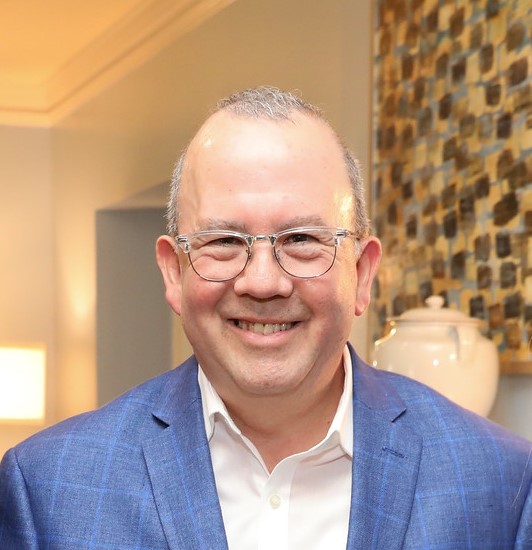
Timmy Martinez
VICE PRESIDENT, MAJOR GIFTS AND PLANNED GIVING
Timmy Martinez
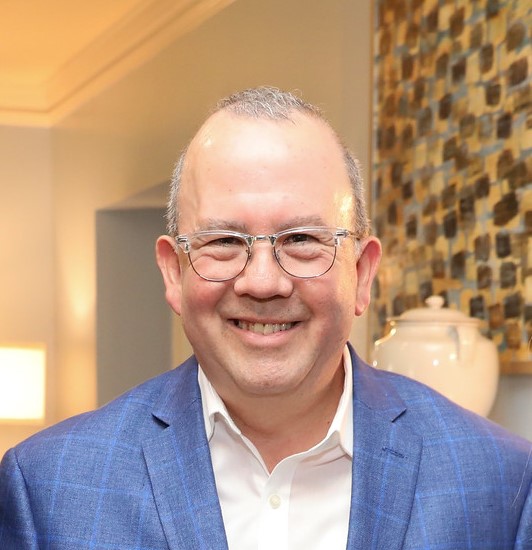
Timmy Martinez joined the Board of Directors for Montrose Clinic in 2003. At the time, Montrose Clinic’s focus was on HIV/AIDS prevention, treatment and education. This tireless work elevated Montrose Clinic to become part of the Seven Sisters. This group was made up of seven similar HIV/AIDS assistance agencies across the United States who met on a regular basis and shared information. “When I found this out, I realized the national presence and reputation of Montrose Clinic,” Martinez says.
In 2004, discussions began about transitioning Montrose Clinic into a Federally Qualified Health Center (FQHC) look-alike. The hope was that eventually the clinic would receive full FQHC status. “It wasn’t an easy decision,” Martinez recalls. “But as a Board we knew that in order to stay financially viable, we would need to expand our services.”
In a continued effort to provide the best service possible, Montrose Clinic merged with The Assistance Fund in 2005. “That was a year that I will always remember,” Martinez says. “The merger gave us the opportunity to change our name. We did this because we knew that our growth would take us outside of the Montrose neighborhood. A few us met in September of 2005 to discuss a new name and we decided on Legacy Community Health Services.”
The name “Legacy” was chosen to represent the organization’s legacy of providing the best care available during the worst of times of the HIV/AIDS pandemic, to honor those who had passed from the virus, and to represent the agency’s legacy of providing affordable health care to the city.
By 2006, Legacy’s Fifth Ward location opened its doors, a partnership with Walgreens was established, and Legacy received full status as an FQHC. “It was the milestones of 2005 and 2006 that set us on track for growth and for helping more people,” Martinez says. “I have told many people that I don’t take credit for any one single decision, but I do take credit for being at the table and making some tough and good decisions.”
When Katy Caldwell asked Tim Martinez to join the Board, he never thought he could have an impact on so many lives. “She brought me along for a historic ride.”
Due to established term limits, Martinez’s Board service with Legacy ended at the end of 2008. In 2009 however, Martinez was given the opportunity to join the staff. At the time, Legacy had fewer than 100 employees – today, that number has grown to over 1,400. “I’m amazed at the number people we are able to help on a yearly basis. It’s a legacy we should all be proud of.”
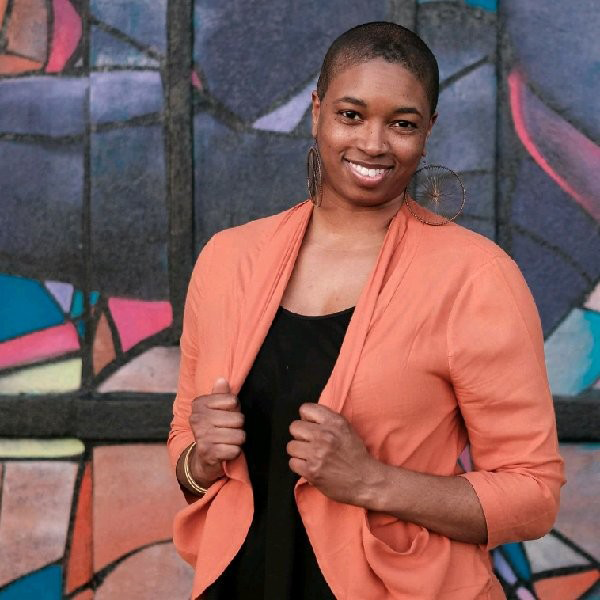
Felicia Latson
Director, Social Determinants of Health
Felicia Latson

Felicia Latson, LCSW, has been instrumental in developing and implementing Legacy’s Social Determinants of Health (SDOH) program and serves as our first Senior Director – Programs, Social Determinants of Health. Legacy’s SDOH program was launched in 2018 to address the socio-economic factors that negatively impact patient health. In Fiscal Year 2021, the team managed a caseload of 3,392 patients, more than double that of the previous year.
According to the World Health Organization, social determinants of health (SDOH) are “the non-medical factors that influence health outcomes. They are the conditions in which people are born, grow, work, live, and age, and the wider set of forces and systems shaping the conditions of daily life.” The majority of a person’s health and well-being exists outside of the care delivered in the doctor’s office. The Centers for Disease Control and Prevention, Kaiser Family Foundation, and Robert Wood Johnson Foundation have outlined the importance of addressing social factors impacting an individual’s health. Legacy’s SDOH program connects low-income patients with food, transportation, utility and housing assistance.
This is about treating the whole person. “By addressing the environmental health impacts individuals face,” Latson explained, “Legacy works to prevent sickness or poor health in the first place. Some ways that this can happen are by ensuring that an individual not only has food to eat, but that the food is healthy; and ensuring patients have access to affordable housing. Legacy is able to do this by utilizing collaborations with community programs that uplift patients’ quality of life by connecting them to resources they need to thrive.”
Legacy’s SDOH program includes a unique intake process, which screens patients for certain non-clinical health barriers during the patient’s visit – such as not having access to proper nutrition in Houston’s food deserts – in order to connect them to a better livelihood.
In fiscal year 2021, the COVID-19 pandemic led to a jump in demand for the services provided by Legacy’s SDOH program. Health Advocate Student Interns worked to identify patients who are likely to have lower quality-of-life outcomes due to conditions in the environment they are born into and live in. Felicia was instrumental in implementing innovative programs such as FoodRX, a collaboration with the Houston Food Bank to provide patients and neighborhood residents with boxes of fresh produce and bottled water.
“At Legacy our mission is to drive healthy change in our communities. Our programs help to break down the barriers and stigma that people sometimes face in getting access to quality medical care,” said Latson. “The patient follow-up is the key part of our program,” said Latson. “We want to make sure our patients are actually getting the assistance they need. It’s how we’re measuring success.”
In addition to continuing to innovate and expand our SDOH program, Latson has participated in numerous forums such as the University of Houston’s Health: A Call to Action conference and the Texas State of Reform Health Policy Conference in Austin to share her expertise and highlight the importance of identifying and addressing social determinants in the health care sector.
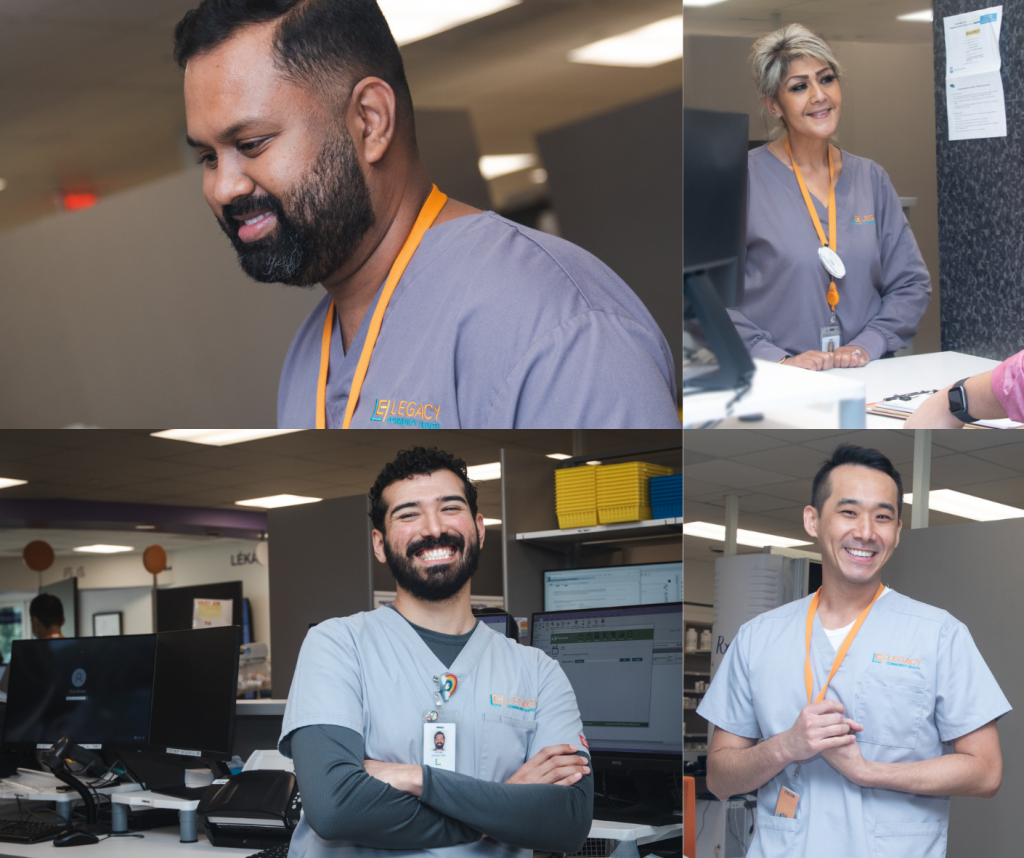
Legacy Pharmacy
Legacy Pharmacy
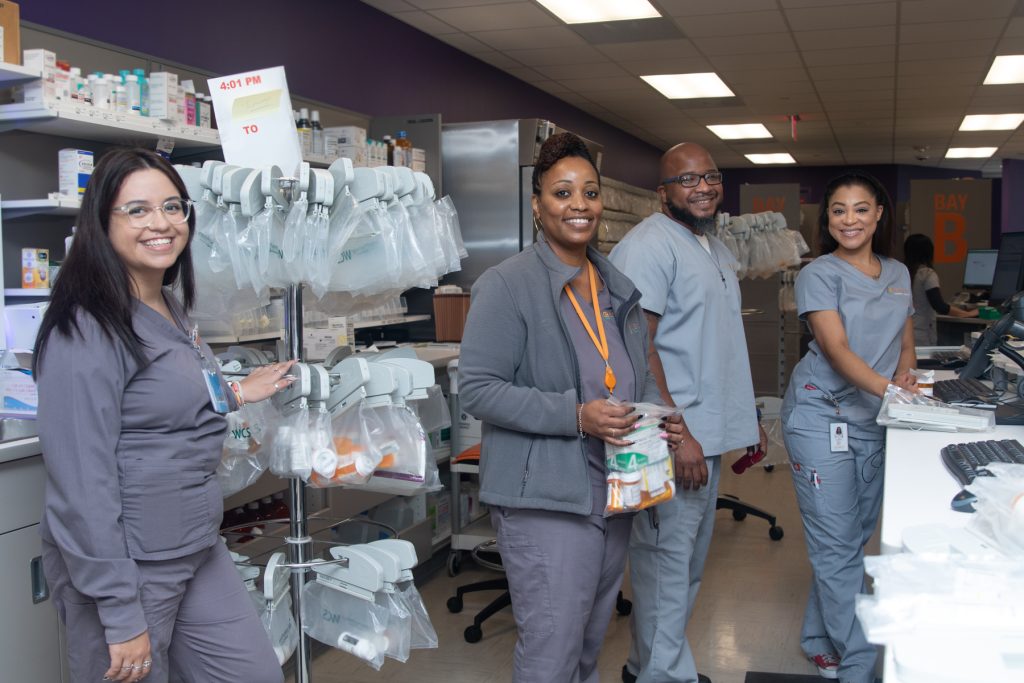
Legacy provides a team-based approach to care. That approach includes a pharmacist, who in addition to performing medication counseling, helps to coordinate care, provide education, and improves access to care between doctor visits.
They provide blood pressure and blood sugar screenings, immunizations and one-on-one medication therapy counseling. Most importantly, our pharmacists strive to provide personalized care to everyone who walks through our doors.
“We call our team community pharmacists because they are there for our neighbors, providing a level of personalized care that isn’t usually found at the big chain pharmacies,” said Ruston Taylor, Legacy pharmacy director. “If a problem or question arises regarding a patient’s prescription, our team can access a patient’s medical records and work with their Legacy health care provider to correct an issue.”
Counseling and engaging patients into HIV care is another aspect of the unique work Legacy pharmacists do every day. At Legacy’s Montrose clinic, patients can get a referral to the pharmacy, where they can be tested, counseled and educated about PrEP (Pre-Exposure Prophylaxis) and leave with a prescription for HIV prevention.
“Legacy pharmacists play a major role in improving the medical adherence and therapeutic outcomes of patients,” said Kevin Aloysius, Legacy Pharmacy PrEP Coordinator. “Reducing the barriers to accessing PrEP can have a positive effect on patient adherence and ultimately their overall health.”
Integrating pharmacists into the broader medical team of doctors, medical assistants and nurses helps to improve health outcomes. That’s why the health center has opened pharmacies inside their clinics in Houston’s Montrose, Fifth Ward, and Southwest neighborhoods.
Legacy recognizes that the high cost of prescription medications is often top of mind for the consumer. Insulin, for instance, can cost up to $300. HIV and arthritis medications can also be expensive. Legacy’s pharmacists help uninsured and underinsured patients receive their medications at a discounted price. The goal is to provide the patient with the right medication at the right time.
“Recently, I helped an uninsured patient who was dealing with a gap period before his insurance coverage kicked in. I was able to get him a discounted copay card and connect him to our eligibility team to assist him in selecting an insurance plan for next year,” said Kevin Aloysius, Legacy pharmacist.
Pharmacy services are just one more way Legacy works to drive healthy change.
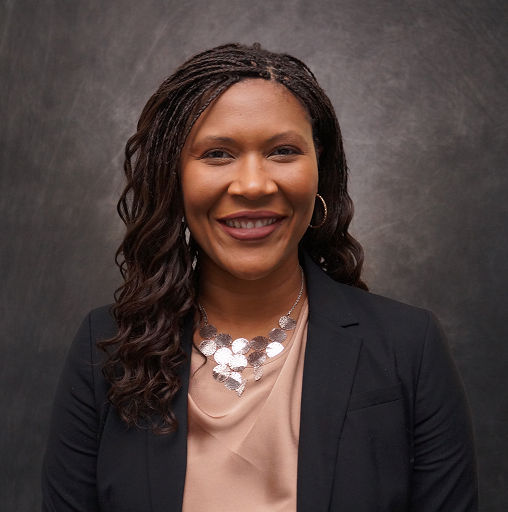
Dr. Teandra Gordon
Vice President, School Based Health
Dr. Teandra Gordon

Dr. Teandra Gordon joined Legacy in 2012 as a therapist in Baytown and was quickly promoted to Director of Therapy Services for the central region. As Legacy began expanding into school-based health care, Dr. Gordon’s passion for working with families and children made her a natural fit to become our first Director of School-Based Therapy. She now serves as Legacy’s Vice President of School-Based Health Care (SBHC), and while her titles have changed over the years, her devotion to helping families and innovating how care is delivered in the school-based setting has remained constant. During her tenure Legacy has increased school-based partnerships from seven to 33 schools across KIPP, YES Prep and Galena Park Independent School District.
Through Legacy’s SBHC program, a nurse practitioner and behavioral health specialist are available to provide assessments and treatments for a variety of health and wellness issues that may arise during regular school hours, eliminating the need to take time away from class, which in turn also takes pressure off working parents.
Under Dr. Gordon’s leadership, Legacy’s SBHC program has been recognized at the local, state and national levels as an ideal model for providing much needed mental health in the school setting. Dr. Gordon has testified in front of Congress twice as a champion for SBHC.
“Our school-based health centers make high quality health care convenient and accessible for students and their families,” says Gordon. “We partner with educators across Houston to foster health in students because we know that to learn well you must be well!”
In her free time, Dr. Gordon teaches parenting classes based on her book, Purpose Filled Parenting, in which she shares her personal journey as the mother of five beautiful children.
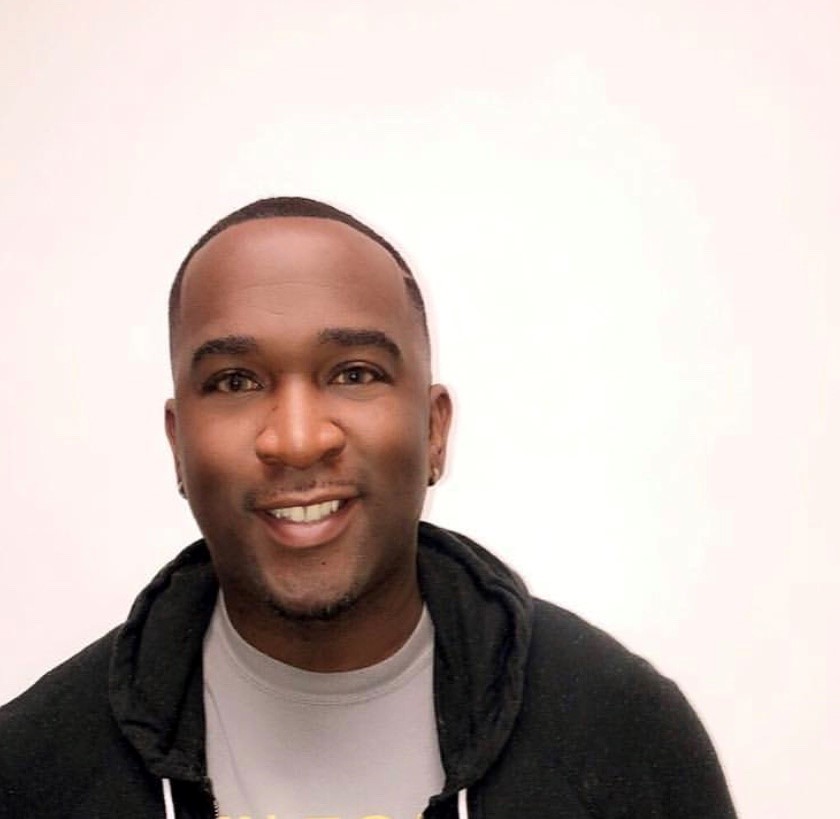
Tim Mann
Public Health, mSociety, HEALTHYU
Tim Mann
Tim Mann’s philosophy of care is firmly planted within the understanding that no two patients are alike. Everyone deserves competent care – and Mann is there to provide it. A member of Legacy’s Public Health team, Mann has worked as a MA, Ryan White Patient Navigator, Health Educator, and Project Coordinator, serving communities across Houston and Beaumont.
After Tim Mann completed his MA in Southeast Texas, the work was swift and varied. He joined Legacy Community Health’s Central Beaumont clinic as a MA, but quickly expanded his position to Houston. As a member of the Public Health team at Legacy, he travels between locations in Deer Park, Baytown and Beaumont assisting patients with postpartum navigation, diabetes education, gestational diabetes, nutrition, STI/STD education, HIV testing, and PrEP.
You don’t have to watch for long to witness the quantifiable good in Mann’s work. “I’ll always remember the first expectant mom I met through the Becoming a Mom program,” Mann recalls. He met her at 28 weeks pregnant, worked with her through the end of her final trimester, met the newborn when the time came, and positioned the new mother for a successful pediatric care routine. “It’s exciting to go through the program with someone for the first time.”
Mann also collaborated in the creation of mSocietyBTX, built for Beaumont to mirror the mSociety in Houston, focusing on African American men who have sex with men (MSM) between ages 18-29 and African American women living with HIV, with no age range. Mann created content for classes and groups, collaborated on swag, flyers, promotion, venues, and assisted in the production of the first mSocietyBTX forum after the first year. “It was so exciting to see that happen in Beaumont,” Mann says.
“Recruiting [for mSocietyBTX] was challenging because we were in a small rural area,” Mann recalls. “It was different from Houston. But I believe that mSociety made me into the person I am now – open, creative, and the kind of person who thinks outside the box.”
Never one to slow down, Mann is also the mind behind Legacy’s HealthyU campaign, designed by Mann to promote medication adherence, behavior change, and patient retention in care. Mann and the HealthyU team presented the campaign at the State HIV Conference in 2020 to an audience of 500 – virtually, of course – focusing on the importance of patient retention and medication adherence, one HealthyU patient even testifying, “I was a mess, I wanted to give up on life but you helped me through the continuum of care.”
“My favorite part of a visit comes at the end when we recap and discuss what the patient learned and how they can apply it to their daily life,” Mann says. “It really feels like I’m helping someone.”
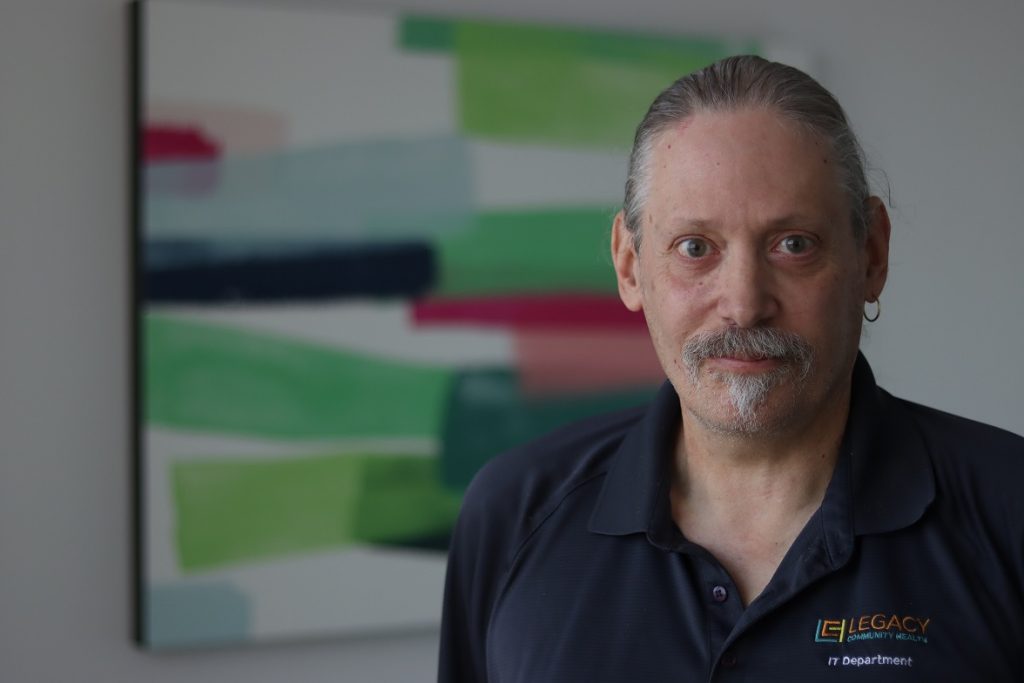
Theron Bretz
Manager of IT Compliance and Security Awareness
Theron Bretz

“I was leaving work one afternoon on a bright sunny day, and as I stepped into the parking lot I put on my sunglasses,” recalls Theron Bretz, Manager of IT Compliance and Security Awareness. “As I was walking to my car, this older gentleman came walking towards me looking very upset. I thought, You know, what’s going on? So I stopped and said, ‘Can I help you?’ And he stopped me and he said, ‘Oh, honey, you didn’t have to do that. I don’t know you.’ He was talking about me covering my face with sunglasses; he thought me, presenting male, walking out of Montrose Clinic – the gay clinic, the HIV clinic – that I was worried about being spotted, and he was trying to tell me that everything was okay.”
This moment from the early 2000s has always stuck with Theron as a lesson on how important privacy is to what Montrose Clinic, and eventually Legacy Community Health, does on a daily basis.
In March 1999, Theron became Montrose Clinic’s 40th employee. Some twenty-plus years later, Theron is leading the charge on IT training for well over 1,000 employees at Legacy Community Health. “I joke that my job is to scare doctors to make them afraid of the internet,” he quips.
When Theron joined Montrose Clinic, which grew to become Legacy Community Health, he originally served at the administrative assistant for the Medical Director and Director of Social Work, eventually moving on to serve the director of development and Katy Caldwell, Executive Director. In 2004, a position opened up for Director of Operations, which handled information technology.
“I joke about it, but I was the least qualified person we had on staff at the time who knew something about computers,” he recalls. “So I got a two-week crash course – suddenly I was the operations manager overseeing computers and facilities.”
Shortly thereafter, between 2005 and 2006, Montrose Clinic merged with The Assistance Fund and Body Positive, becoming Legacy Community Health. Through the growth, Theron managed Legacy’s help desk and IT support, keeping the burgeoning clinic on its feet during one of the most crucial stretches of its development.
“About five or six years ago, I transitioned into the security role and a big part of that is staff security awareness.” Famous for his phishing tests, Theron keeps Legacy staff on their toes by employing a range of cybersecurity lessons throughout the year, emphasizing the importance of protecting patient health information from scammers, hackers, and phishers.
Recalling Legacy’s former, older Southwest building, he’s filled with pride thinking about how far Legacy’s come since he was hired – back when Montrose Clinic was but one small building. “The first time I walked into [the new, current Legacy Southwest] I teared up because it’s just so amazing. It’s beautiful,” he says. “Just to see the way we grow, to see what that impact is, and think about where we were and where we are.”
“[Legacy Southwest] is my favorite to go. I tell my boss all the time going there gives me all the warm fuzzies.”
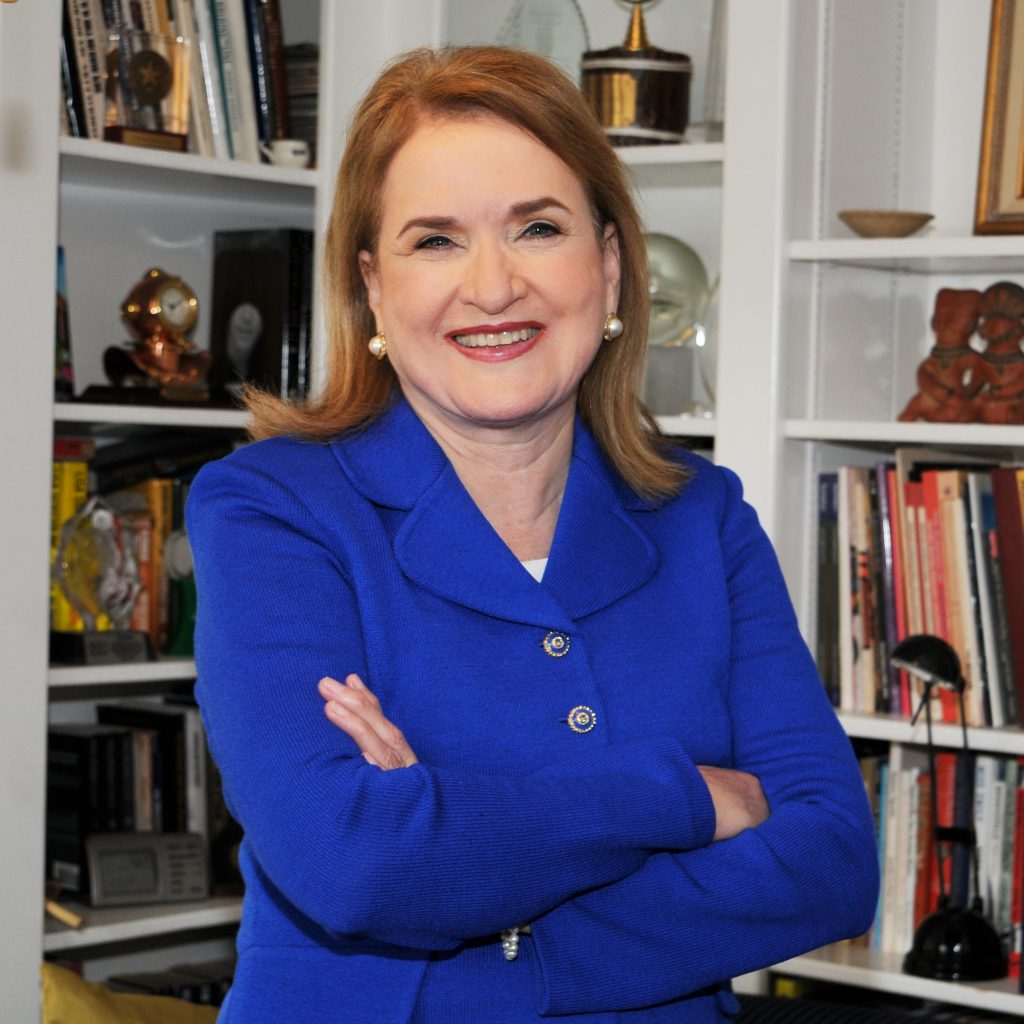
congresswoman sylvia garcia
Congresswoman Sylvia Garcia

Legacy’s response to COVID-19 has been unparalleled. As one of the first health care providers to open its doors as a public testing site, Legacy sent a clear signal that it would lead the way through this pandemic just as it had during the HIV/AIDS crisis of the 1980s. I have been proud to work with Legacy hand-in-hand throughout the last year, delivering thousands of masks to Legacy’s medical team in Houston’s East End, Northside, and Southwest communities, and working with the agency’s medical teams to provide vaccine events across Houston.
I am grateful to Legacy for embracing our community with open arms in our greatest time of need, and for continuing to provide quality, affordable health care to Houston’s most underserved populations. I wish Legacy and all its providers well in the year to come and thank you for your dedication to community.
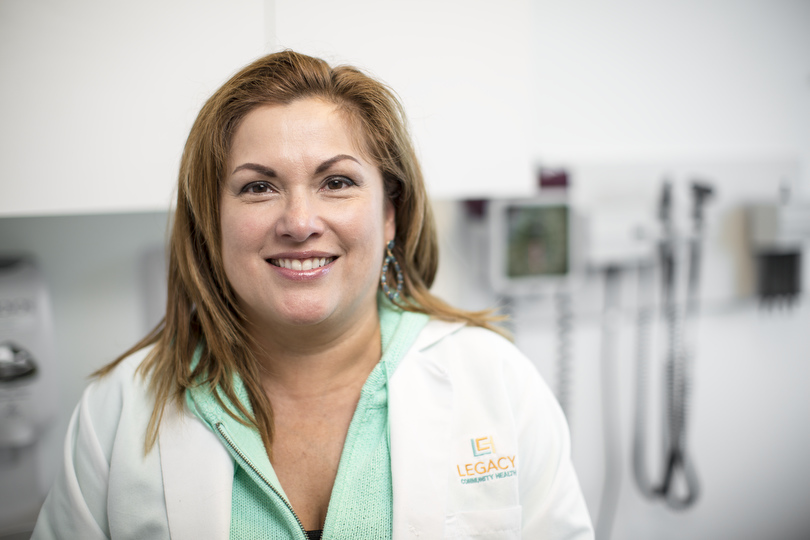
Dr. natalie Vanek
Infectious Disease Physician
Dr. Natalie Vanek

For almost a decade, Natalie Vanek had helped build Legacy’s preeminent HIV practice, which remains anchored in the Montrose location but has expanded to multiple clinics in the region. She has made significant contributions to the agency’s reputation in HIV medicine across Texas and the nation. More than once has she treated an HIV- positive husband and his HIV-positive wife, then working with them both to give birth to an HIV-negative baby.
She also develops the protocols, both internally and for the public, around other infectious diseases like Hepatitis C, Ebola, and measles. It’s about treatment, prevention, and, importantly, managing the public’s anxiety around new diseases to the region.
Vanek has been honored to serve as national vice chair for the AIDS Drug Assistance Program, which determines how to spend federal money from the Ryan White HIV/AIDS Program for those who cannot afford medication.
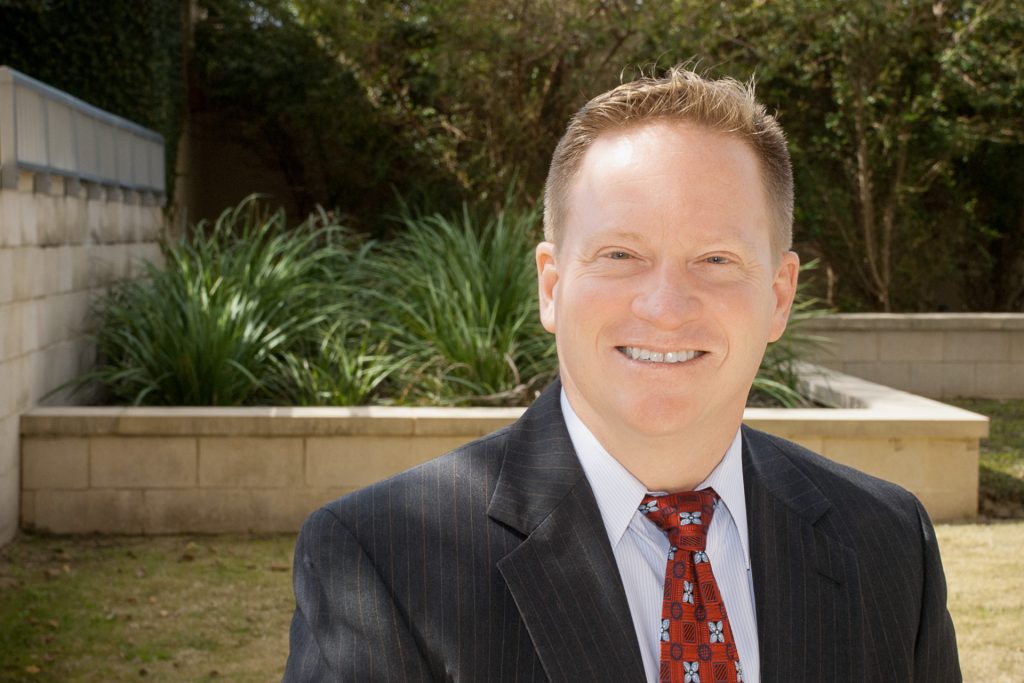
Judge James F. Kovach
Former Board Member
Judge James F. Kovach

Judge James “Jim” F. Kovach joined the Montrose Clinic board in 2004, a pivotal time in the organization’s history. The clinic had just begun the process to become a Federally-Qualified Health Center (FQHC) and then, one year later it merged with the Assistance Fund and became Legacy Community Health.
“I remember we met for a brainstorming session at United Way. We had sticky notes on the walls on which we’d written our dreams and aspirations for the future,” says Kovach. “We set an ambitious goal of providing affordable health care to Southeast Texas, and I was initially skeptical we could achieve this in our original timeline. I felt energized, but it was a daunting task.”
Kovach was also involved in the decision to move into Fifth Ward in 2006. “It took courage from (former CEO) Katy Caldwell and the leadership of other board members who said. ’Let’s go do it. Let’s go try.’ It was so successful. And now Legacy has that beautiful Fifth Ward clinic in a neighborhood that very much deserves it.”
Kovach says Caldwell’s leadership and friendship inspired him to become a judge in Harris County’s Civil Court. “I learned to dream big. And, when I visit neighborhoods and talk about my time on the board, almost everyone has a friend or family member who’s been impacted by Legacy. I’m incredibly proud to have been associated with an agency that has meant so much to so many people.”
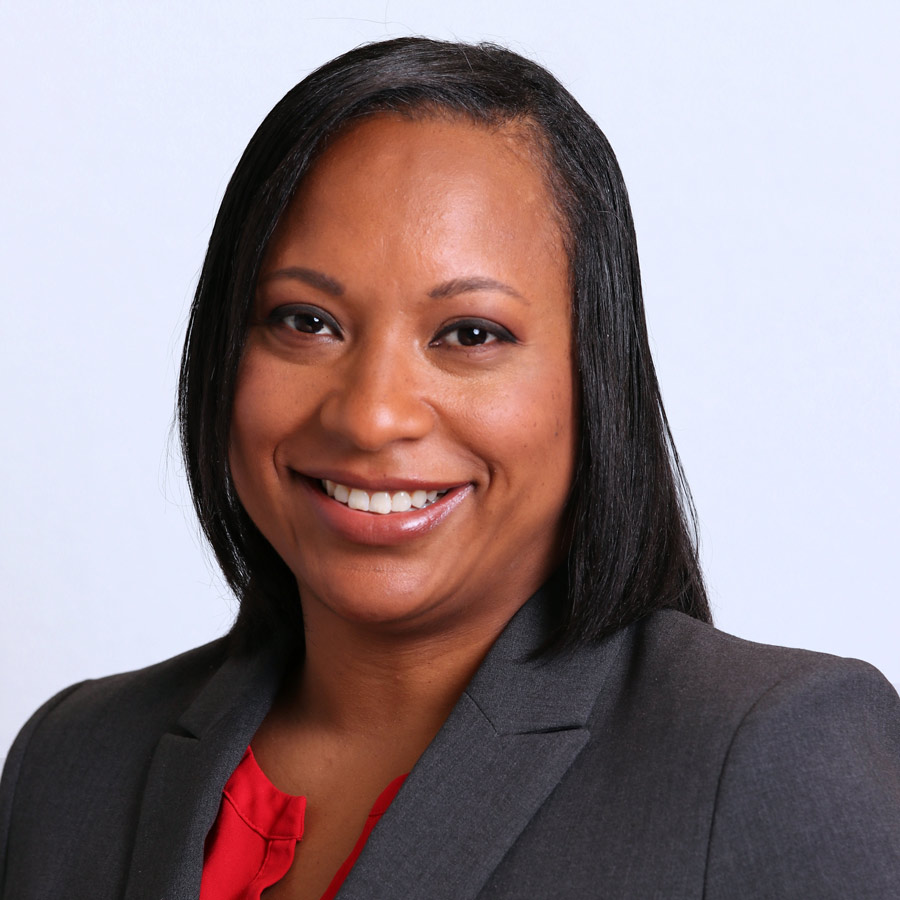
Dr. Tamisha Jones
Senior Medical Director of Clinical Services
Dr. Tamisha Jones, Senior Medical Director of Clinical Affairs
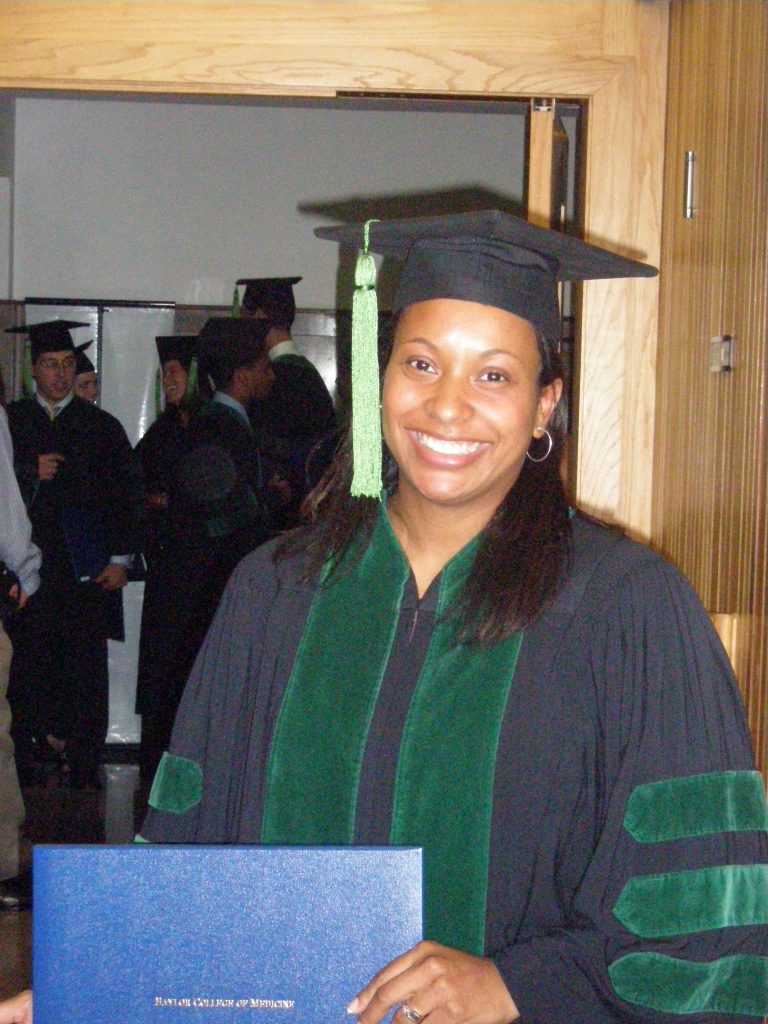
Dr. Tamisha Jones at her graduation from medical school.
Dr. Tamisha Jones had an inkling that she wanted to be a pediatrician as far back as elementary school. In high school however, she decided to be an architect instead. It was a brief detour from health care that, while it seems unrelated from the field entirely, actually set the foundation for a successful venture into medical school.
After earning her undergraduate degree in structural engineering from University of California at Berkeley, she went back to the books for a graduate degree – also in engineering, also at UCB. After grad school, she returned to Houston, where the tide shifted. “I decided to finally pursue medical school,” Dr. Jones recalls. “[Post-grad], I studied at night and worked during the day. I finished my requirements in a year.”
Looking forward to a career in healthcare with a background in engineering, Dr. Jones thought that maybe she would go into orthopedics, combining her passion for both fields. “But I didn’t like surgery,” Dr. Jones laughs. “It’s hard to be an orthopedic surgeon when you don’t like surgery.”
She found her calling where it had been all along: pediatrics. “I was open to everything,” she remembers of her time studying with the Baylor College of Medicine. “I went through my rotations and eventually only had psychiatry and pediatrics left. I really enjoyed my pediatrics rotation. Even in my OBGYN rotation, I enjoyed handling the babies most.” Dr. Jones completed her residency in pediatrics at Baylor-affiliated hospitals including Texas Children’s Hospital and Ben Taub General Hospital, before joining Legacy Community Health in 2012.
“I enjoy the innovative things I’m able to do [at Legacy],” Dr. Jones says. “We’re able to provide great health care while also offering innovation.” She recalls the lunchtime conversation with Legacy Chief Medical Officer Dr. Vian Nguyen – then the medical director of OBGYN – about connecting the OBGYN service line to pediatrics. That casual conversation created Legacy’s renowned OB2Pedi program, a longform care plan that assists expectant parents through their pregnancy and into the first few years of the newborn’s life. “We were given the tools to take this idea and create a program that keeps people connected to care and shepherded through the process,” Dr. Jones recalls. “OB2Pedi is one of many programs that I’ve had the opportunity to be a part of.”
“Of course it’s always nice to be somewhere where I can watch a family grow, from newborns to elementary,” Dr. Jones continues, speaking of patients who were infants when she met them, who are now approaching middle school. “There are even some infants I serve now, whose parents were my patients when they were teenagers when I started [almost ten years ago].”
Dr. Jones began working with Legacy as a pediatrician at the Lyons and Southwest clinics, commuting back and forth between them throughout the week before becoming the Medical Director of Pediatrics until 2021, when she was promoted to Senior Medical Director of Clinical Affairs. “Legacy gave me the opportunity to lead, which I didn’t consider before,” Dr. Jones says. “They took a chance on me.”
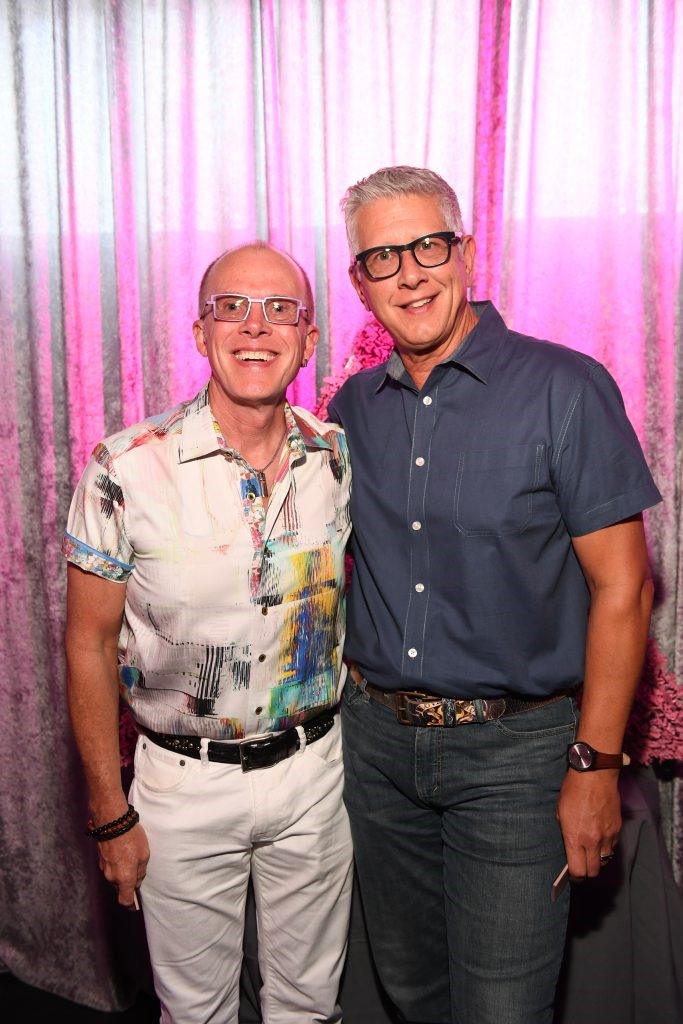
Bob Lawson
Former Montrose Clinic – Legacy Board Member
Joe Tate and Bob Lawson
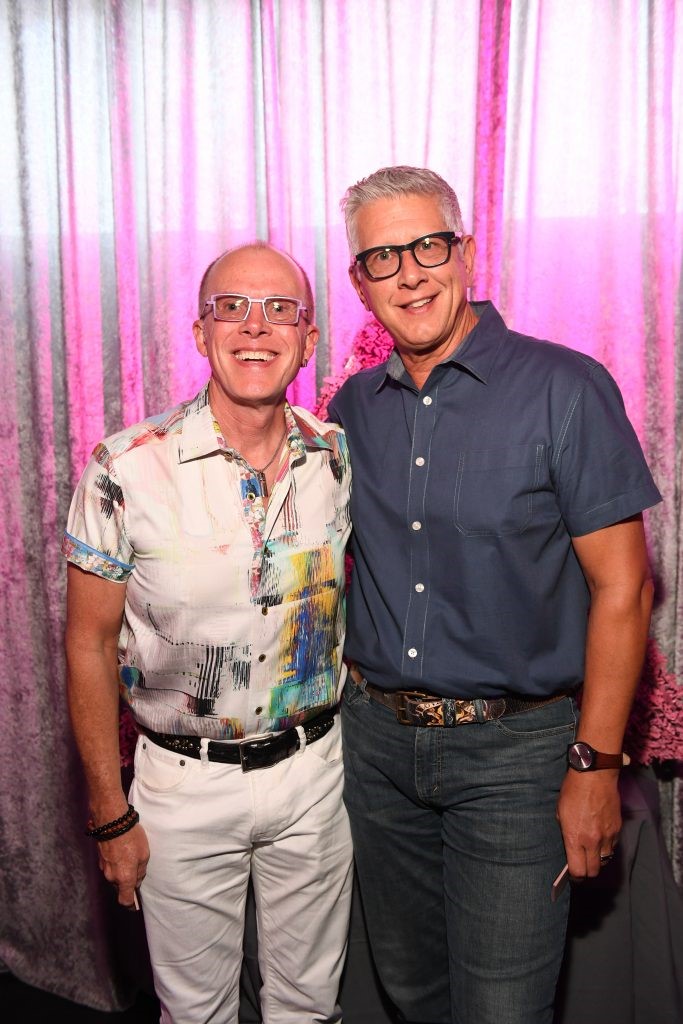
Bob Lawson recalls his six years as a Legacy board member were some of the most impactful and fulfilling in his life. “The Board dreamed big dreams for its growth, built a foundation for its financial strength, and adopted a new name that honored its past. I take great pride in the organization and its team.”
In the early 2000s when Legacy was still known as the Montrose Clinic, services were spread out in three locations. “We just felt like it made more sense to be in a central location where we could offer the best service and keep the team together,” says Lawson. “But we knew it was important to stay close to our roots in Montrose.”?
Legacy purchased property at 1415 California Street In 2006, just a block from the bus route that made it easier for people to get there. Bob pushed hard for a Development Officer to raise money and lead a capital campaign for what would eventually become the new Montrose clinic.?
“My husband Joe and I are proud to have our name on the donor wall at the clinic even though it was a huge financial commitment for us. But it’s something that we felt had to be done, and the community really stepped up,” Lawson says. “I’m amazed at how big Legacy has become and how many people they impact. It’s so much more than I ever thought it could be when I was sitting on the board.”
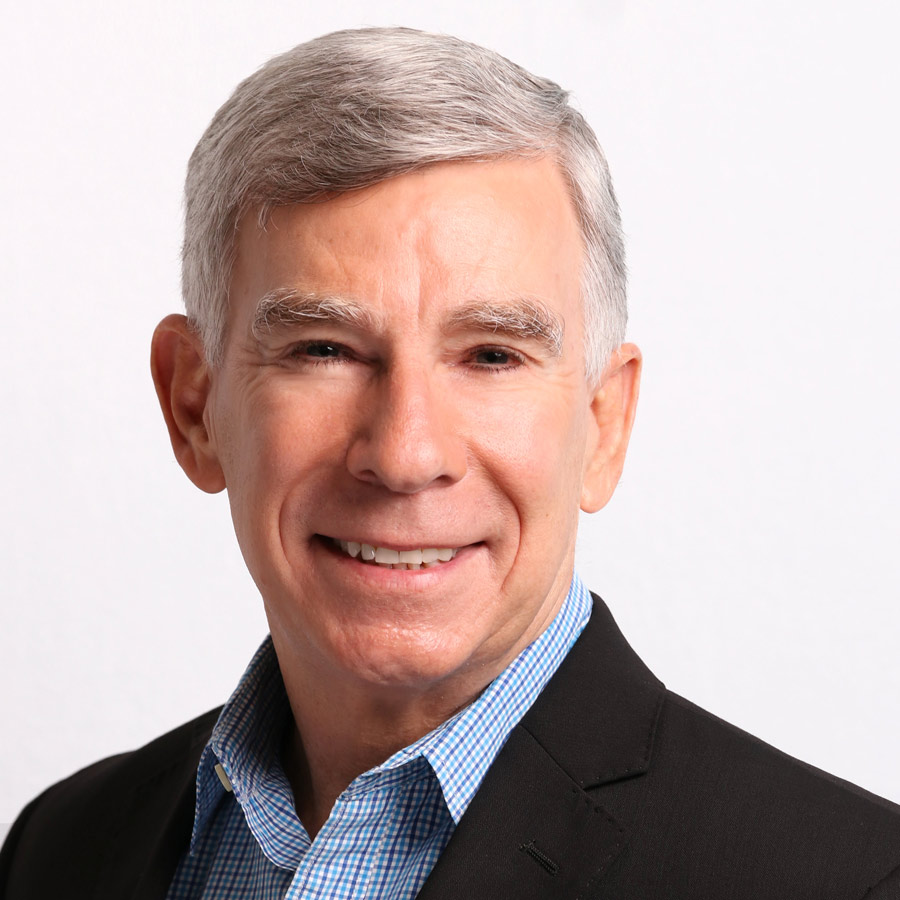
Dr. Scott Sawyer
Medical Director of Vision Services
Dr. Scott Sawyer, Medical Director of Vision Services

Before he was Dr. Scott Sawyer, little Scott always knew he wanted to go to medical school. Once he was there, ophthalmology seemed like a good direction to go once he got there. “You see the elderly, the young; you see patients who need chronic care, you perform surgery. You have a knowledge of internal medicine. It seemed like a great cross section of medicine,” Dr. Sawyer says.
Dr. Sawyer studied ophthalmology in medical school before spending two years in Macon, Georgia (“It’s not hell, but you can see it from there”) and eventually settled in Houston where he opened his own private practice.
During the 1980s and ‘90s, while the AIDS epidemic was only getting worse, many people with HIV and AIDS were developing retinopathy, or changes in blood vessels of the retina, which led many patients to go blind from their HIV. Those who had insurance could access treatment, but there was nothing for the uninsured.
“In 1988, I saw first patient with AIDS,” Dr. Sawyer remembers. “He was in the VA hospital. They had us in gloves, masks, suits, all of it. Nobody knew what this was.”
A year later in 1989, he came out of the closet. “It was my own family dying, then. It was my friends and acquaintances.”
The bulk of Dr. Sawyer’s practice through the 1990s and early 2000s then became focused on HIV retinopathy. “We don’t see this infection much anymore because of protease inhibitors [developed in 1996].”
Dr. Sawyer knew of Montrose Clinic, as many of his patients were also Montrose Clinic patients seeking treatment for their HIV. In “about 1994,” Dr. Sawyer and Montrose Clinic teamed up. “[Montrose Clinic Executive Director] Katy Caldwell and I both knew there was a need for eye treatment for those living with HIV,” Dr. Sawyer says.
And there was someone willing to donate to make that partnership happen.
Monte Frost, who himself was battling HIV, “donated something like $25,000 to Montrose Clinic to start an eye clinic,” Dr. Sawyer recalls. “Patients came in on a schedule to have their eyes checked, dependent on their T-cell count.”
“Once the virus gets in your eyes, your life span was about 18 months,” Dr. Sawyer says.
“But the Frost Eye Clinic gave people a place to go,” Dr. Sawyer continues. “If you could diagnose it early, you could treat it.”
Dr. Sawyer was the first doctor to work for Montrose Clinic’s Frost Eye Clinic. He retained his private practice at the beginning of the venture – for about a decade – spending one day a week at Montrose Clinic and the rest in his own office. He worked with specialists at Montrose Clinic to form and mold Frost into the celebrated clinic it is today.
“I feel that most ophthalmologists feel like they do great work, but don’t make a difference,” Dr. Sawyer says, reflecting on his career so far. “But I feel like I have made a difference. Legacy has saved lives. They really do make a difference. Catching eye disease early; lots of hands-on care, helping people access care. Even services that Legacy doesn’t offer, we connect people to elsewhere. The work we do here makes a difference.”

hurricane katrina
On the morning of August 29, 2005, Hurricane Katrina made landfall as a category 4 hurricane approximately 45 miles southeast of New Orleans. As the storm progressed inland, officials in New Orleans thought they had “dodged a bullet, but as the hours dragged on, the levee system in New Orleans was overwhelmed by the amount of rain and the storm surge.
By August 30, 80% of New Orleans was underwater. People who did not evacuate were either stranded at home or had taken shelter at the Superdome.
People who were able to evacuate to Houston started showing up at Montrose Clinic. Many of them thought they would only be gone for a few days and did not have an adequate supply of their medications. They knew that Montrose Clinic could help. As evacuees continued to arrive in Houston, the Astrodome took on new life as a place of shelter.
A Legacy employee contacted Katy Caldwell and said they believed we had a problem brewing. It was initially estimated that that the Astrodome would shelter 2,300 people, but final estimates were that 60,000 were sheltered at the Astrodome, and that at any given time there were about 25,000 across all the shelters across the city.
The Montrose Clinic response to the burgeoning crisis was two-fold: Staff went to the Astrodome wearing logo shirts. The hope was that people who were living with HIV and/or members of the LGBT+ community would self-identify and request assistance.
Additionally, the staff of NO AIDS had evacuated to Houston. The Board of Montrose Clinic was prepared to help them and their clients any way that they could. Montrose Clinic office space was provided for NO AIDS staff. Marianne Huerter, the Board Chair, called Montrose Clinic Board member Tim Martinez, suggesting that financial assistance might be needed to help NO AIDS. Martinez told her, “There isn’t any choice. It is the right thing to do.”
As Board members from both organizations coordinated with each other, Montrose Clinic Executive Director, Katy Caldwell worked with the executive director of NO AIDS to reach out to donors locally and across the nation to provide financial assistance. In the end, NO AIDS was able to stay financially afloat and is still in existence today. They are now known as CrescentCare and have expanded their services across New Orleans.
Our legacy of helping people doesn’t just stay within the confines of Southeast Texas. It doesn’t know any borders.
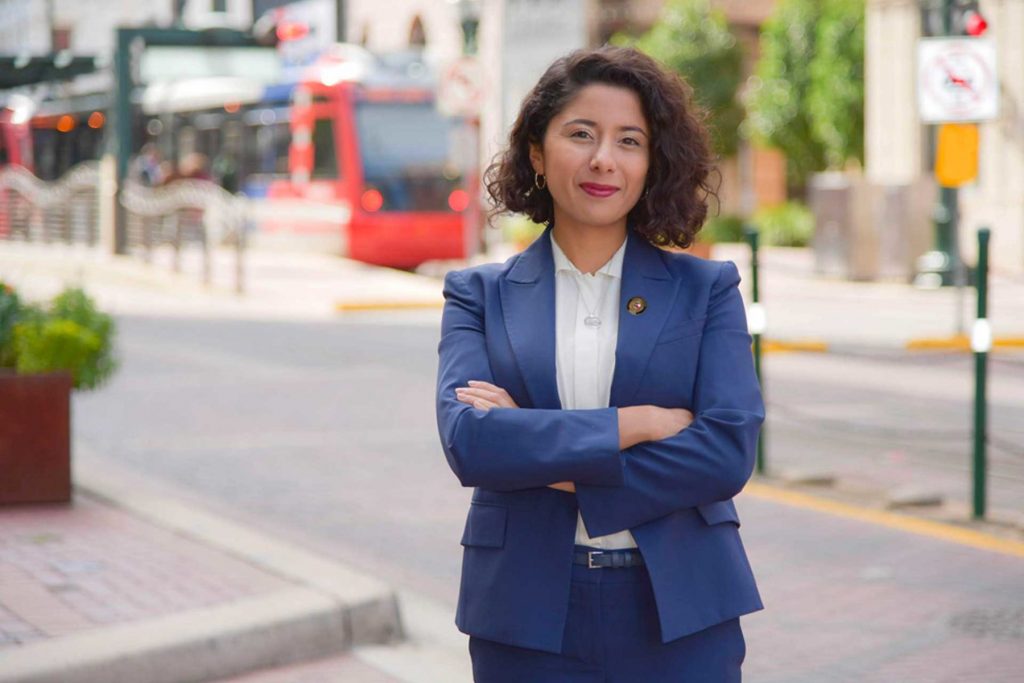
The Honorable Lina Hidalgo
Harris County Judge
Harris County Judge Lina Hidalgo

With historic roots in the HIV/AIDS crisis, Legacy has now led the way through
two pandemics. At the start of the COVID-19 pandemic, Legacy was among the
first to open public testing sites in Houston and Beaumont, offering safe and
affordable testing to residents in need, regardless of their ability to pay.
Last year alone, Legacy opened six new clinics across Harris County, including
the addition of school-based clinics in Galena Park Independent School District
(GPISD), and a brand new flagship clinic in Southwest Houston. With these
additions, Legacy now operates 41 clinics across Southeast Texas and has
helped to expand access to care for over 200,000 community members.
I’m grateful to Legacy for always providing our community with hope and
quality, affordable health care. I wish the agency and all its health care heroes
continued success in the coming year. Thank you for your partnership in the
County’s COVID-19 response efforts.
Sincerely,
Lina Hidalgo
Harris County Judge
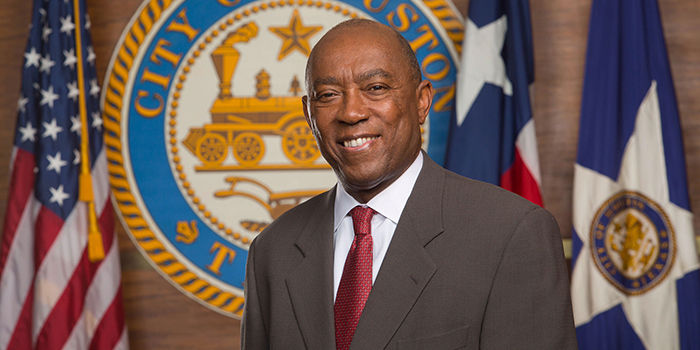
Mayor Sylvester Turner
City of Houston Mayor
Mayor Sylvester Turner
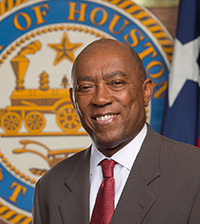
Under Katy Caldwell’s leadership, Legacy Community Health has been a leader in health care from the very beginning when they opened their doors to patients in 1978. Now, this Houston institution – one of the largest community health systems in Texas – has become a full-fledged medical force, providing comprehensive health care to a diverse population at multiple clinics across the region. Legacy’s value in providing affordable health care has, I would argue, never been more important to Houstonians.
Sincerely,
Sylvester Turner
Mayor, City of Houston
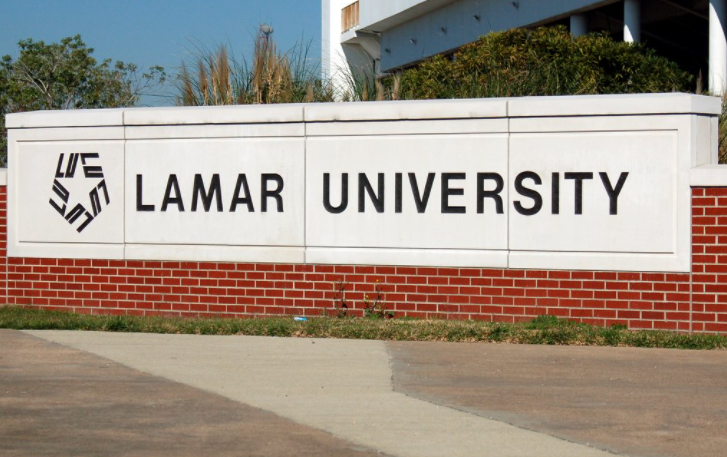
Lamar University
Lamar University is a diverse and globally accessible university that has been serving the Southeast Texas community since 1923. From the time that Legacy opened its first Beaumont location in the South Park neighborhood in 2012, we’ve been working together to break down barriers to health care for our students and the community at large. We embrace Legacy’s mission of “Driving healthy change in our communities,” and its belief that comprehensive health care is a human right, regardless of the ability to pay, without judgment or exception.
Lamar’s students come from many backgrounds and from across the world. Some students do not have health insurance, or know how to access health care or manage their health and wellness. There are many in the Beaumont community who face these same barriers. Through our relationship with Legacy, we’ve worked together on countless efforts to drive healthy change on the Lamar campus and surrounding community. We’ve offered public health education on a variety of topics such as HIV/AIDS and COVID-19, conducted free health screenings, engaged with LGBTQ+ and first-generation college student groups to empower them to own their health, and participated in various activities to build awareness of Legacy’s comprehensive health and wellness services. Additionally, in the past Lamar has had students intern at Legacy Community Health as part of their required coursework.
As we prepare to celebrate Lamar’s centennial celebration in 2023, we are more committed and excited than ever to continue working with Legacy to break down barriers to health care for our students and surrounding community.
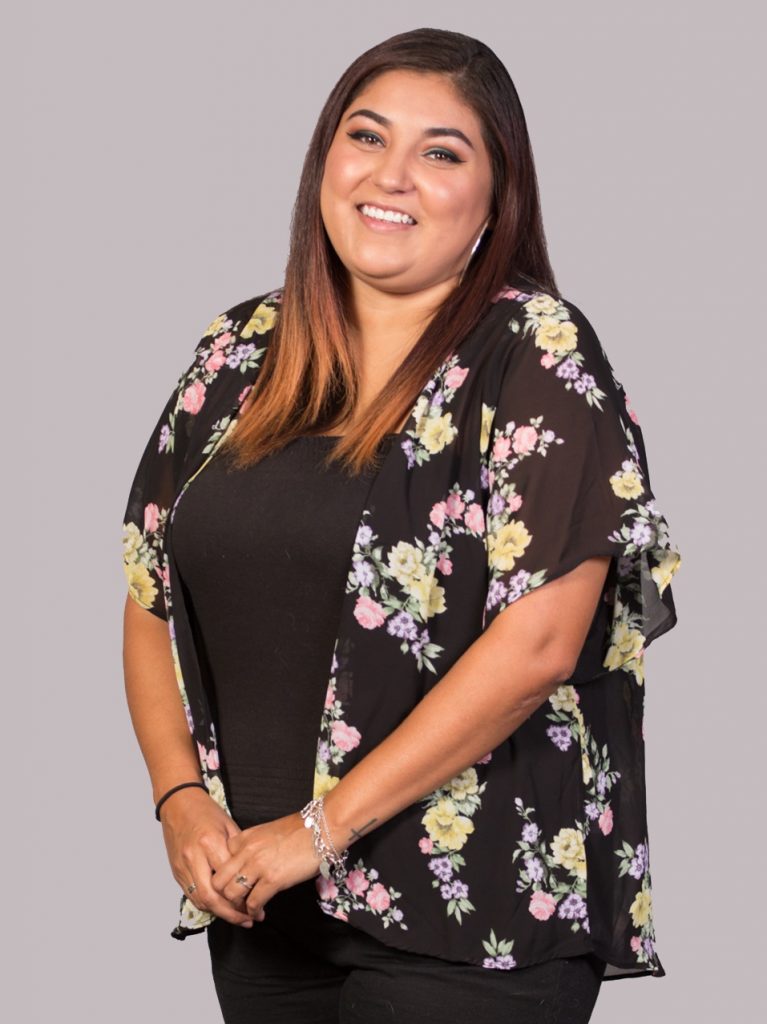
Jessica Ramirez
Behavioral Health Patient
Jessica Ramirez

Mental health care isn’t something Jessica’s family ever gave much thought to. For Jessica, the notion of having a therapist was something reserved for “crazy people”—that is until she decided to seek help for herself and discovered that the stigma against mental health is nothing but nonsense.
Jessica Ramirez has struggled with depression much of her life, but outside of school counselors, she never had the opportunity to seek professional treatment. “My older family members don’t believe in this stuff, so it kind of makes you not believe in it,” she says. For her family, imbalances and uncertainty should be addressed with the church.
Although society is taking steps to end the stigma, we still have a way to go. For patients like Jessica, the effects of mental health stigma were far reaching. As she grew older, her depression remained.
Rather than battle it on her own, she reached out to Legacy Community Health to take control. After a year of treatment with Legacy, she says she has no plans to stop any time soon. “I’ve talked to other mental health care providers and it’s just different. Dr. Young is just the best. Open to anything I have to say. I feel like she cares more than anything. I feel safe.”
Looking back on her struggle with crippling depression over the years, Jessica couldn’t be happier with her current state and her outlook on the future. “I’m just really happy. I love it. I have never even thought about stopping. I’m very happy here,” she says.
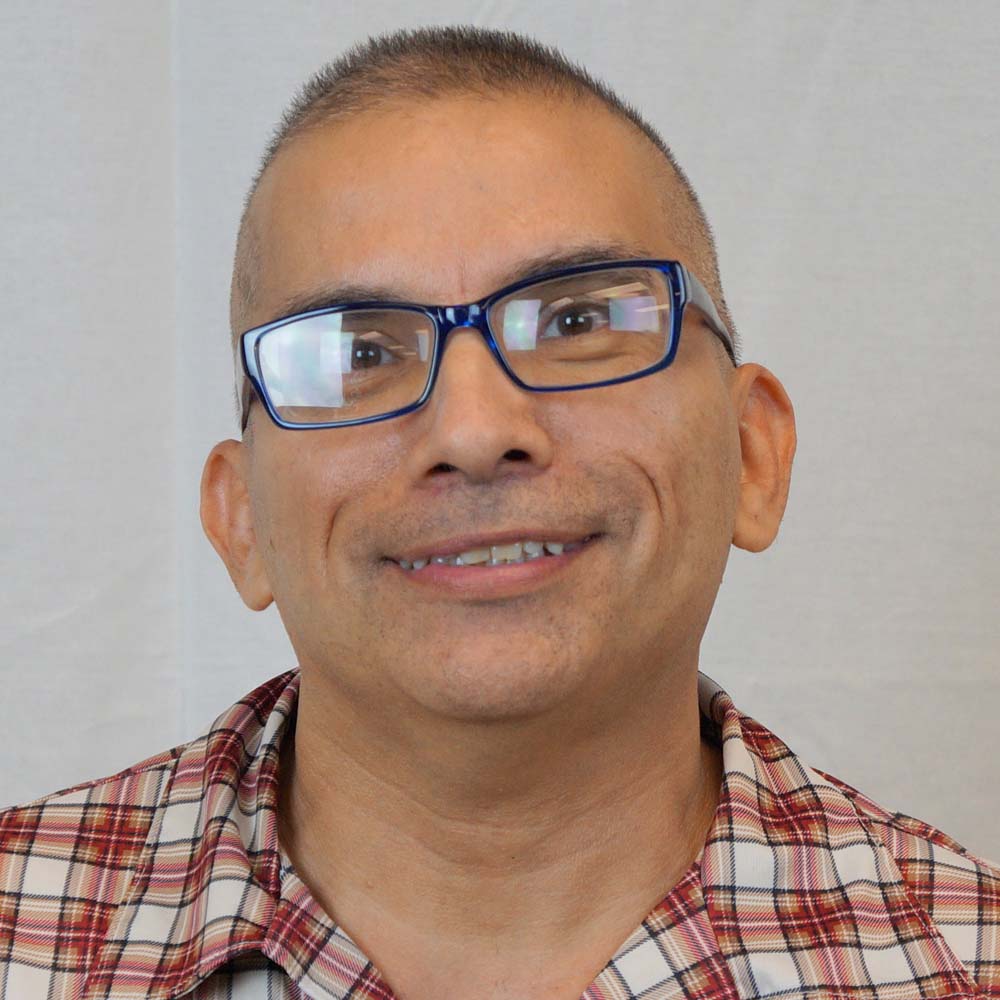
Daniel gutierrez
Legacy Team Member
Daniel Gutierrez
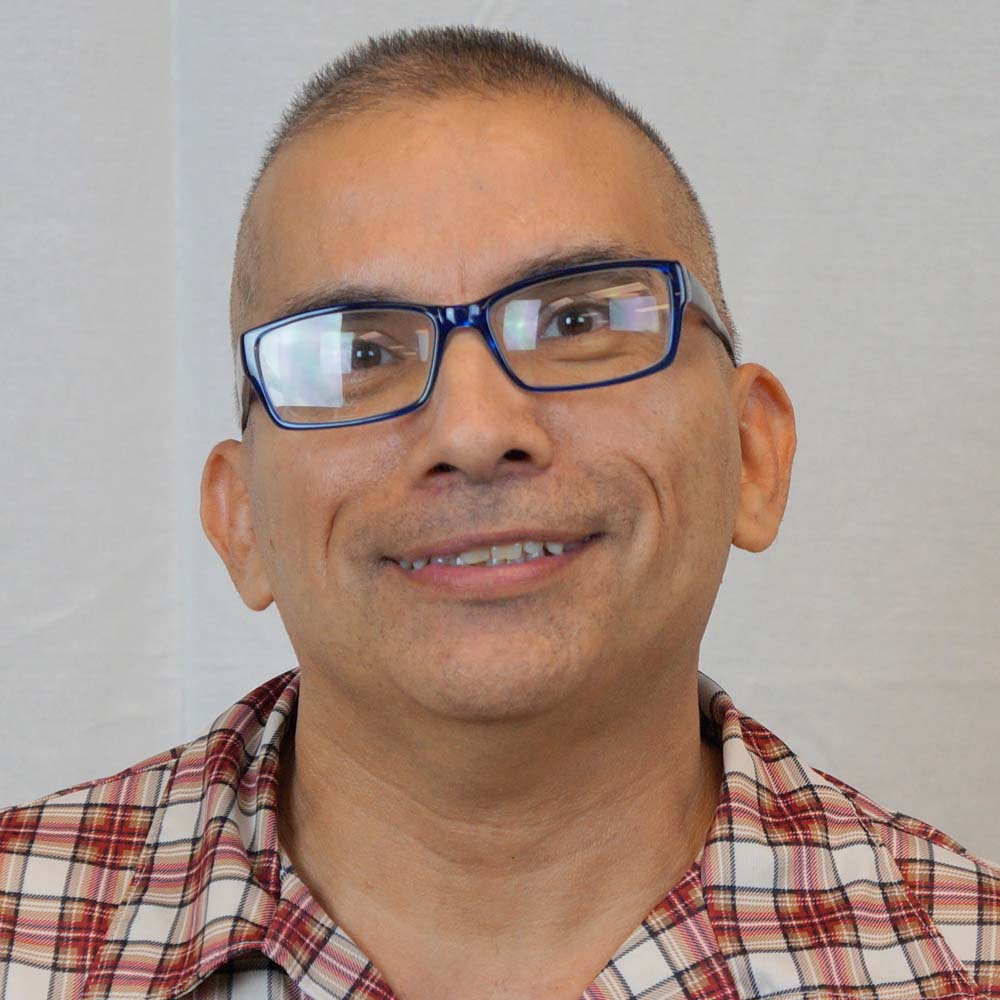
Daniel Gutierrez is Billing Data Coordinator at Legacy Montrose Allen Parkway (LMA). His Legacy journey began in 2001 as a patient at the Montrose Clinic. The following year, he worked the front desk for the Body Positive program. Gutierrez has worn many hats during his long career at Legacy, including serving in Eligibility and Verification.
“What I love most about working here is the diversity. You won’t find that anywhere else. I learn something new every day,” says Daniel. “I have made a lot of friends and colleagues at Legacy, and the support has been overwhelming.”
Growing up as the tenth child in a family of twelve kids, Daniel’s favorite traditions were always the huge parties for Christmas and birthdays. Those traditions are still in place but are much smaller now since his parents have passed away.
“In 1995, I was diagnosed with HIV and for some reason I thought I would be shunned by family members and friends, but the opposite happened. Everyone was uplifting and supportive,” Daniel courageously shares.
Daniel’s favorite saying comes from the Book of Proverbs, “Trust in the Lord with all your heart and lean not on your own understanding but in all your ways acknowledge Him and He will direct your path!”
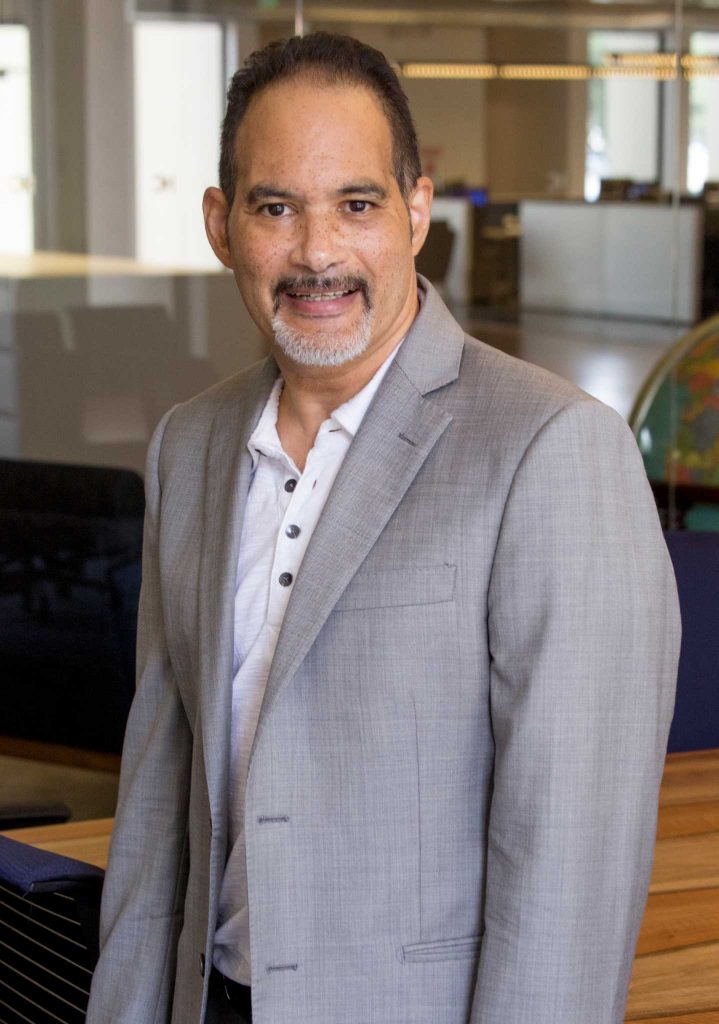
Representative Garnet Coleman
Representative Garnet Coleman
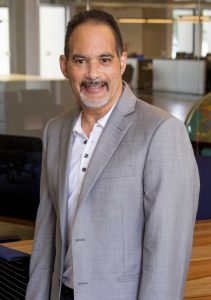
Legacy Community Health’s roots stem from the heart of Texas House District 147. In the 1980s, Legacy took a stand to meet the needs of the community, providing health care at the height of the HIV/AIDS crisis in a small operation off Richmond Avenue. Now, Legacy has become the largest network of community health centers in the state with over 40 clinics not only in Houston, but across Southeast Texas. With its growth, Legacy has kept its promise to meet the needs of our most vulnerable populations, expanding access to care for close to 190,000 community members, including women, children and seniors. I thank Legacy for the care it provides my constituents every day and me personally as my primary care provider.
Sincerely,
Garnet F. Coleman
Texas House of Representatives, District 147
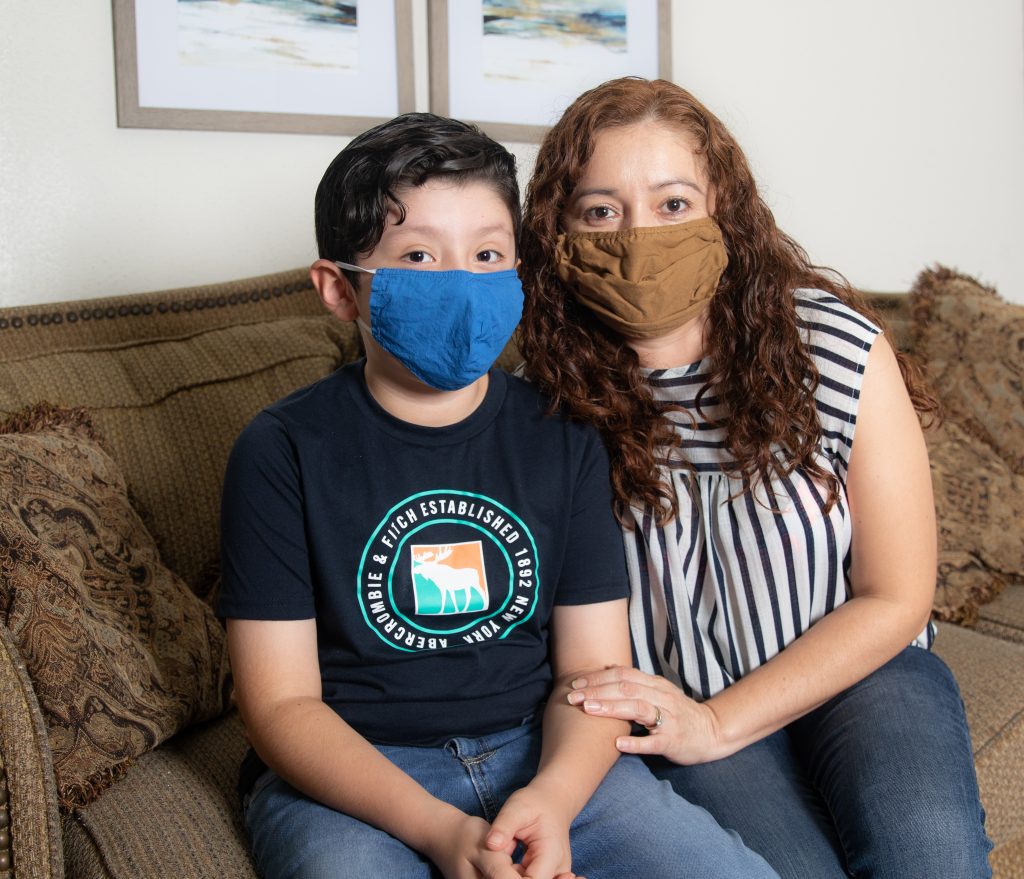
Evelyn Boeckmann and her son oliver
Legacy Southwest Walk-In Clinic
Evelyn and Oliver Boeckmann

During the COVID-19 pandemic, Evelyn Boeckmann became concerned when her son Oliver developed a cough. With the coronavirus was very much on her mind, she scheduled an online appointment at Legacy Community Health’s Pediatric Southwest Walk-In Clinic. There Dr. Yong Han saw Oliver and helped him get the treatment he needed.
“Everyone was very nice and we didn’t have to wait long to see Dr. Han,” said Boeckmann. “Any worries I had about the virus quickly disappeared. The staff wore masks and disinfected after each patient.”
The Legacy Southwest Pediatric Walk-In Clinic opened in 2019 to offer comprehensive services to patients and their families through flexible hours, minimal wait times and convenience of care. Located in Houston’s diverse Gulfton neighborhood, the clinic is staffed seven-days-a-week and sees patients, between the ages of newborn to 18-years-old, for a multitude of illnesses and conditions.
Boeckmann’s children get much of their health care through Legacy’s school based clinics at KIPP Connect schools. However, during the COVID-19 pandemic, Legacy Southwest Pediatric Walk-In Clinic proved to be the right option at the right time.
“The care my son got was amazing. I had no doubt that Legacy made his health and wellbeing a priority during this stressful time,” said Boeckmann.
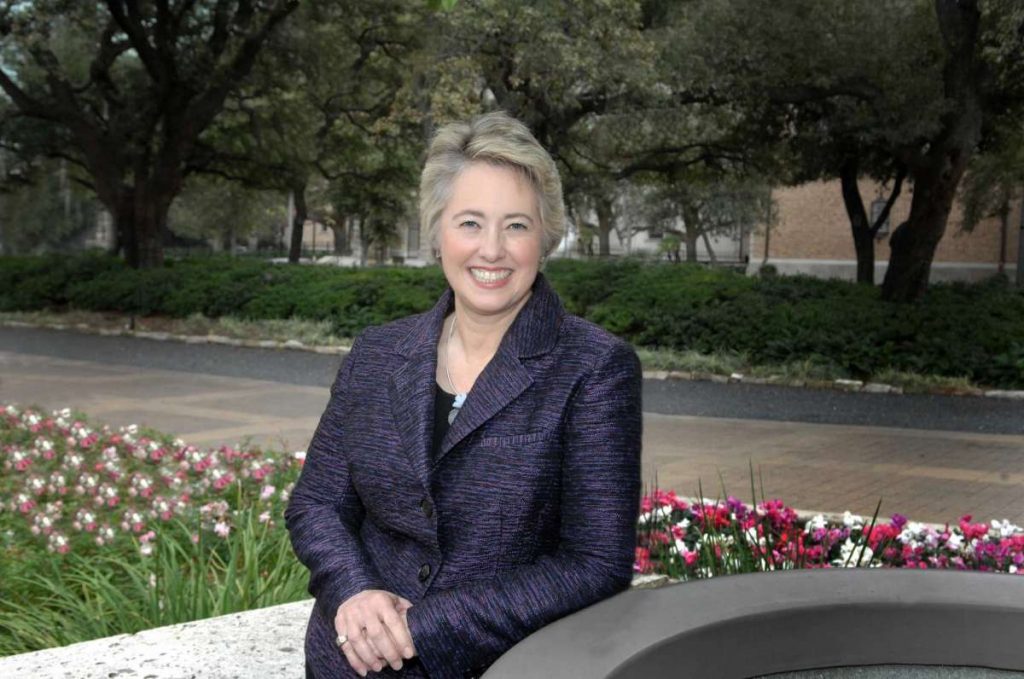
Annise d. Parker
Former Mayor of Houston
Annise D. Parker, Former Mayor of Houston

“Legacy Community Health has been driving healthy change in our community for more than 40 years. Their commitment to providing services and programs to all who need them, regardless of the ability to pay, without judgement or exception, serves as a shining example of the community impact nonprofit organizations can have.
It is easy to take access to health care for granted when it is provided at a reasonable cost through an employer but for many in our community it’s a daily worry. Will their children get the dental care or eyeglasses they need to perform well at school? Will an expectant mother be able to receive the vitamins and checkups she needs to ensure a healthy delivery? Where will an unemployed young adult diagnosed with HIV/AIDS be able to turn for help and treatment?
Thankfully, Legacy Community Health is there with the answers and the care. They identify unmet needs in health care services and fill in the gaps with client-centered programs that address those needs. And they do so with a keen eye toward fiscal responsibility.
I salute Legacy Community Health for being a community leader. Thank you for all that you do and best wishes for more successful years ahead!”
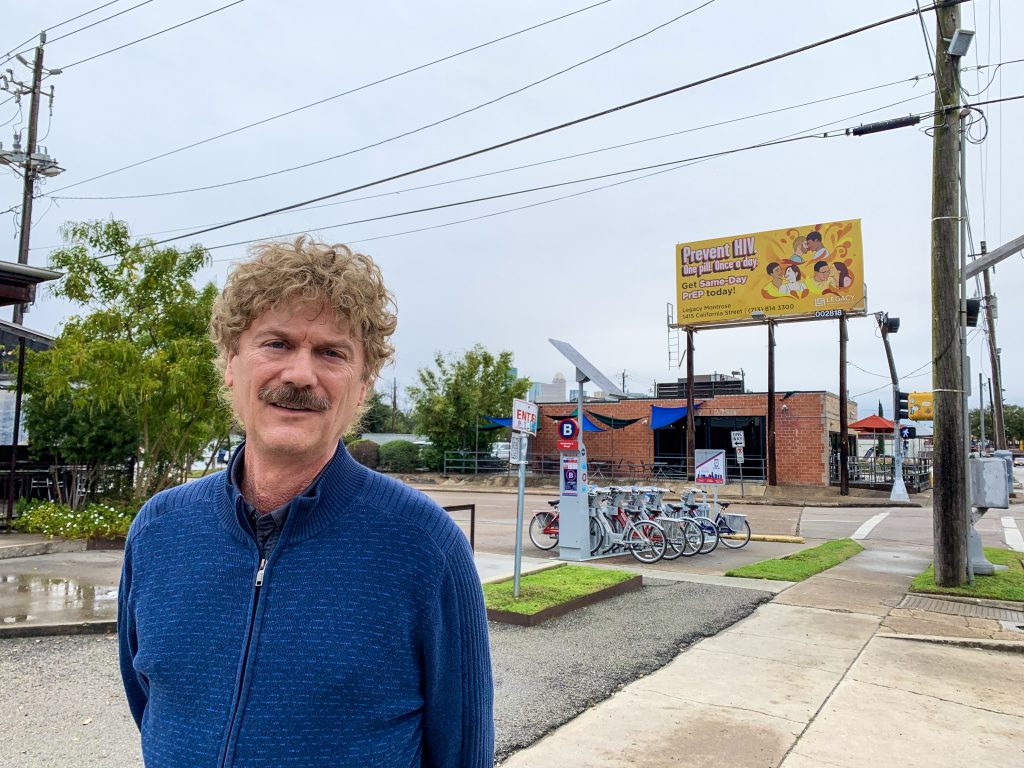
Steve Stellenwerf
Longtime HIV Survivor
Steve Stellenwerf

Steve Stellenwerf, a patient health educator at Legacy, connects those at risk for HIV to PrEP and those living with it to antiretroviral therapy, or ART, through the Ryan White program. He’s been navigating patients through these processes for over 30 years. To some, this kind of career is a calling from an early age, rooted in a passion for health care. For Stellenwerf, who in his younger days was on the path to Hollywood, this couldn’t be further from reality.
Stellenwerf met his lover, Ricky, in 1979. Stellenwerf had just moved back to Houston after college, where Ricky owned a hair salon. Chasing dreams of stage and screen, Stellenwerf relocated to Los Angeles. Though several states lay between them, the pair remained together. “We had other lovers while we were apart. I think the best way to describe us would have been ‘best friends.’ Yes,” Stellenwerf says.
In 1987, he got the call. Ricky phoned him from Houston to inform him that he had just received a positive diagnosis for HIV. When his own test also returned positive, he took the news in stride. “I thought it was likely, because all my close friends were positive.”
Stellenwerf recalls a fever dream 24-hour period when he and his roommate crossed the border to Tijuana to purchase cheap HIV medications before driving nonstop from California to Houston to help Ricky.
“In the 1980s and ‘90s, gay men and their allies were going to so many funerals, that most of us lost count. If we were not taking care of someone at home or visiting someone in the hospital, there was another funeral to attend. I lost count by the mid ‘90s and eventually stopped attending funerals altogether, with a few exceptions,” Stellenwerf says.
“Those of us who were left ‘still standing’ experienced a kind of collective grief through the shared experience of multiple losses over a long period of time; it’s been classified as AIDS Survivor Syndrome – it’s a real thing. You could see it in our eyes – the pain, the tears – unimaginable loss not seen outside of war.”
Stellenwerf began working in the HIV field as a way to give back to the community. He began participating in the widespread grim ritual of collecting unused HIV medications from the homes of friends who had died of the virus to be passed along to others who needed them, but couldn’t afford them. He continued the practice for five years until asked to stop by a stern – but understanding – supervisor at his job at the time.
Despite the best efforts of physicians and Stellenwerf himself, Ricky passed in 1993.
Like a majority of gay men living with HIV at the time, Stellenwerf liquidated assets and hit the road, not thinking he’d need the money later. “Right after my Ricky died, I went to Greece with a girlfriend,” he says. “We spent like $9,000, which I really didn’t have. But I wasn’t thinking about the future. I got my credit cards up… I wasn’t going to be here in five or ten years.” He clarifies that he’s since paid them all off and sorted his finances back out, but the story is all too familiar to long-term survivors who weren’t expecting to be such.
The change came in 1996 with protease inhibitors. “If you lived to see 1996, you’re probably around today,” Stellenwerf says. “My doctor told me, ‘You can start planning for a future now.’ I had been living my life anyway, but that took the specter off of me and told me that I might not die young.”
In 1998, Stellenwerf met his current partner, James, who was volunteering at the AIDS assistance organization Stellenwerf was the volunteer coordinator at.
Stellenwerf never thought to leave field of work to go back and chase his dreams in Los Angeles. To him, the actor Steve Stellenwerf is a different version of himself, and not the man he grew into. “This is my life’s work,” he says of patient navigation. “It is so rewarding. I can’t imagine having done anything else.”
Stellenwerf has worked at Legacy for nearly a decade now, after 20 years with his former employer. The Montrose Clinic, which grew to become Legacy, had been in his periphery all those years, but the opportunity to work with Legacy has been the greatest gift – not only for the folks he’s able to help, but for himself, too. “I’m able to tell young folks who are newly diagnosed, ‘Look at me, I’m thirty years positive and I’m not sick; I’m working and I’m thriving!’” he demonstrates. “’That’s going to be you,’ I tell them.”
“I don’t even lie about my age anymore,” he laughs. “I used to! But now I need to be proud of it because my friends didn’t get to be here.”
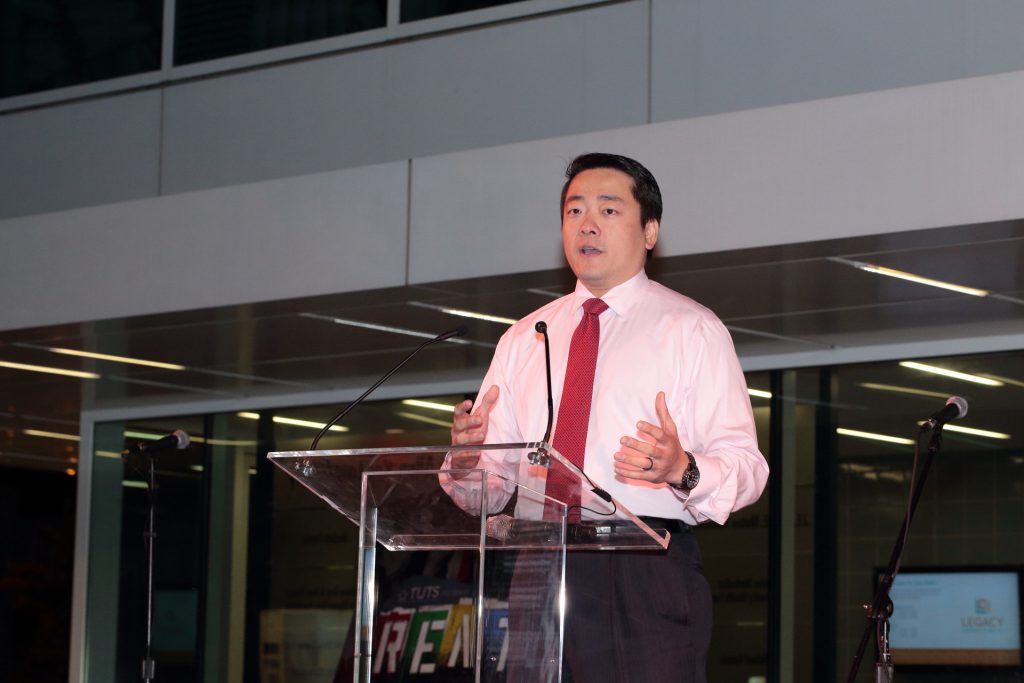
Representative gene wu
Rep. Gene Wu at World AIDS Day
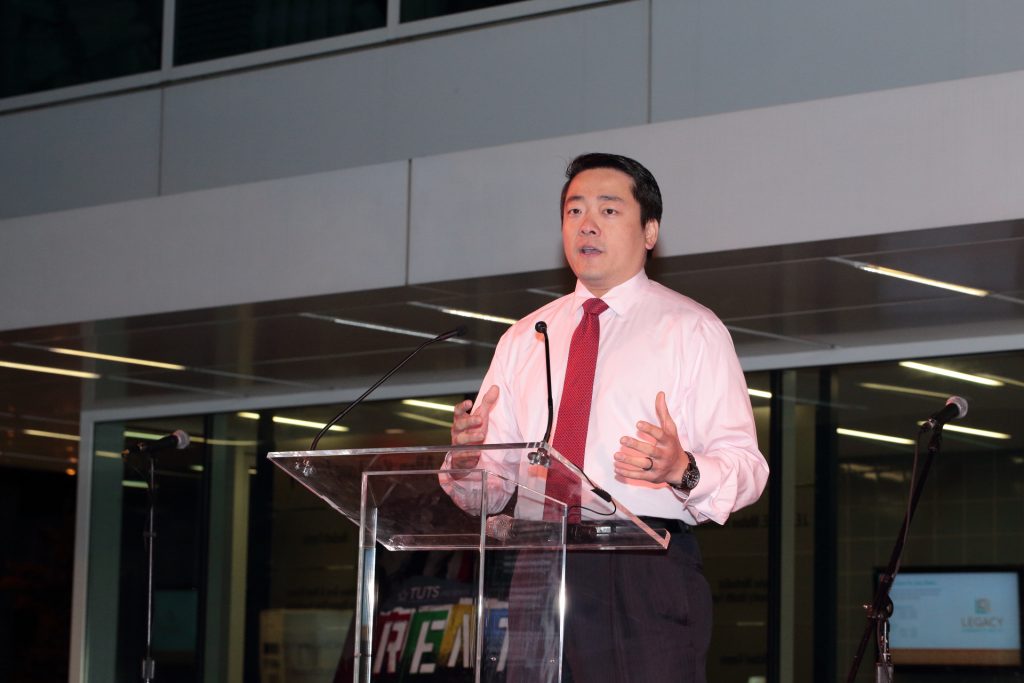
“Legacy Community Health has been a health care provider in my district for as long as I have served in the Texas House. But even before I took office, I watched them grow into a true powerhouse in community health care from working out of a one story clinic in Montrose to an entire health system made up of 30 clinics from Houston to Beaumont. They’ve kept their commitment to LGBTQ health as they expanded into full primary care services, making their mark in pediatrics, OG/GYN, and behavioral health care. I believe in Legacy’s commitment to affordable quality care to the most vulnerable, and I think that their work is just as valuable to the city today as it was when they were founded almost four decades ago.”
Sincerely,
Gene Wu
Texas House of Representatives, District 137
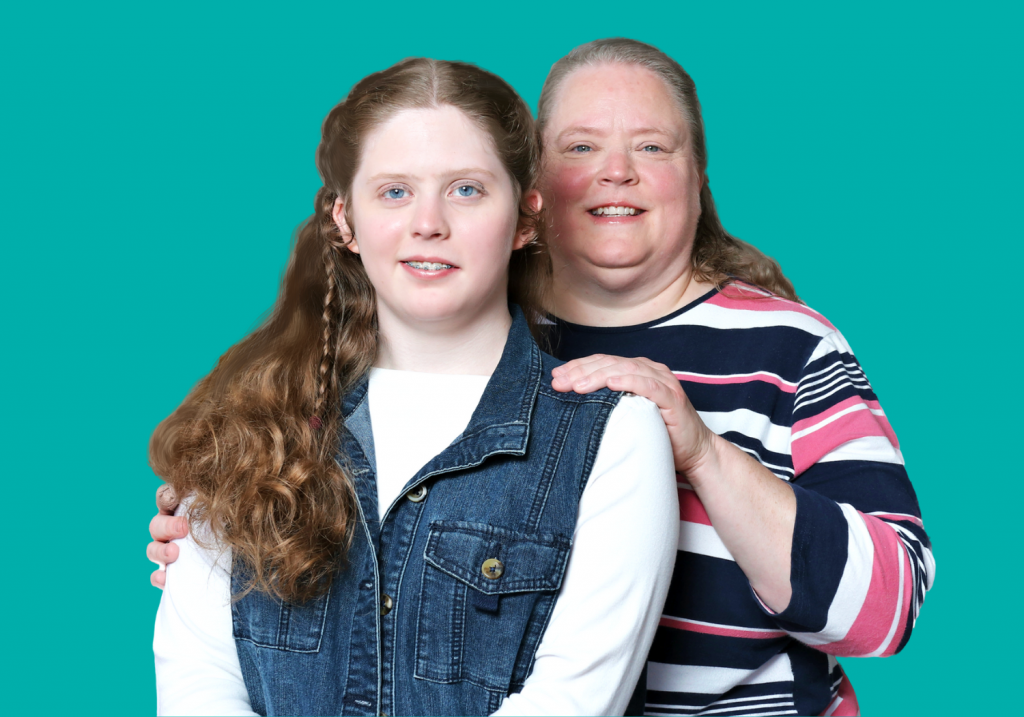
Jane and esther woolman
Pediatric Patient
Legacy Deer Park Patient
Esther and Jane Woolman

Jane and Esther Woolman had been longtime patients at our Montrose clinic. Esther, who is on the autism spectrum, relied on Legacy for her primary care to help manage several health conditions. However, the long treks to Montrose began to take a toll, causing Jane to look at alternatives for Esther. That is when she learned about Legacy Deer Park.
Jane Woolman remembers the day she found out Legacy was expanding into Deer Park. The mother of five, had contemplated leaving Legacy for somewhere closer to her Pasadena home to provide care for her daughter, Esther. “I liked the care Legacy provided my family on visits to the Montrose clinic for Esther’s adolescent care. However, some days that could take up more than half a day of traveling,” Woolman says.
The Woolmans were there when Deer Park opened its doors in 2017 and ever since that day, Legacy pediatrician Dr. Jessica Brown has been providing primary care for Esther. “Dr. Brown has a way about her,” Woolman says, “You feel like she is really listening to you and your health concerns. She truly connects with her patients.”
18-year-old Esther is on the autism spectrum and suffers from other health conditions. Woolman says Dr. Brown works with Esther’s various specialists, some of whom are based outside of Texas, to coordinate her primary care.
The Deer Park location, along with its wide array of services for adult and pediatric patients, made it easy for Woolman to get the care she needed for both Esther and her twin sister, Bethany.
“Deer Park was very close to the girls’ high school. I could pick them up and take them to the clinic and have them back at school in an hour,” Jane says.
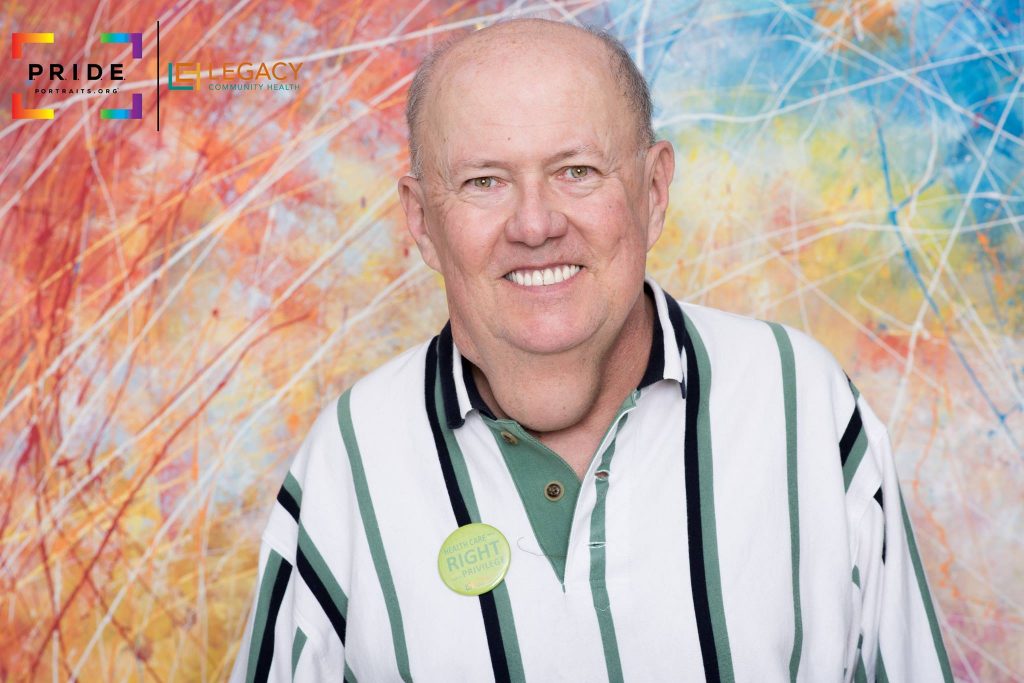
Brian keever
Longtime Volunteer
Brian Keever
Brian Keever has been living with HIV since 1986. Since his diagnosis he has been an advocate, a volunteer, a community activist, and more. Helping others for as long as he could became his reason to get up each day. “Still kicking in 2021,” Keever says that giving up was never an option.
“They told me, ‘Don’t worry, you’ll be passed away by ’89, so you might as well get your affairs in order,’” recalls Brian Keever, longtime HIV survivor.
“Of course, back then that’s how it really happened,” Keever clarifies.
In 1985, Keever weighed just 128 pounds and had a 29-inch waist. As an adult male, he knew something was off. His physician, Dr. Patricia Salvato, could not see him pro bono, but knew he couldn’t afford to pay for treatments. She first referred Keever to MD Anderson. He had friends involved with Montrose Clinic however, including future executive director of the clinic Thomas Audette, and ultimately became both a patient and volunteer with “the little clinic that could.”
Instead of preparing his end-of-life affairs, he got involved.
“I wouldn’t be here if it weren’t for Montrose Clinic,” Keever says of the small volunteer clinic which later became Legacy Community Health. “Not every clinic or doctor was doing the same thing [in HIV care]. There wasn’t a standard. Different doctors and clinics tried different medications. I did a double-blind study for a drug out of a laboratory in Lyon, France [through Montrose Clinic] where I took six pills once a week – they helped me stay alive.”
The community knew of Keever’s survivorship, too. Popular in the gay scene, Keever used his influence to answer questions and refer people to the lifesaving care at Montrose Clinic. “Montrose Clinic was probably one of the best-run clinics in the state of Texas,” Keever remembers. “We still are!”
“I went through more than my share of funerals and memorials for friends who passed away,” Keever continues. “But through the 1980s we did the March on Washington, the AIDS Quilt; I was a member of the board of directors for the Names Project here in Houston, which was wonderful. We were the first city to bring the quilt outside of Washington, DC and we brought it over the George R. Brown [Convention Center]. A lot of people who helped with that were also involved with Montrose Clinic.”
“There weren’t a lot of straight people involved at the time, other than to occasionally donate some money,” Keever concludes. “But really no big organizations to speak of. It was really on our shoulders as a community. It was places like Montrose Clinic that kept us alive and got things done.”
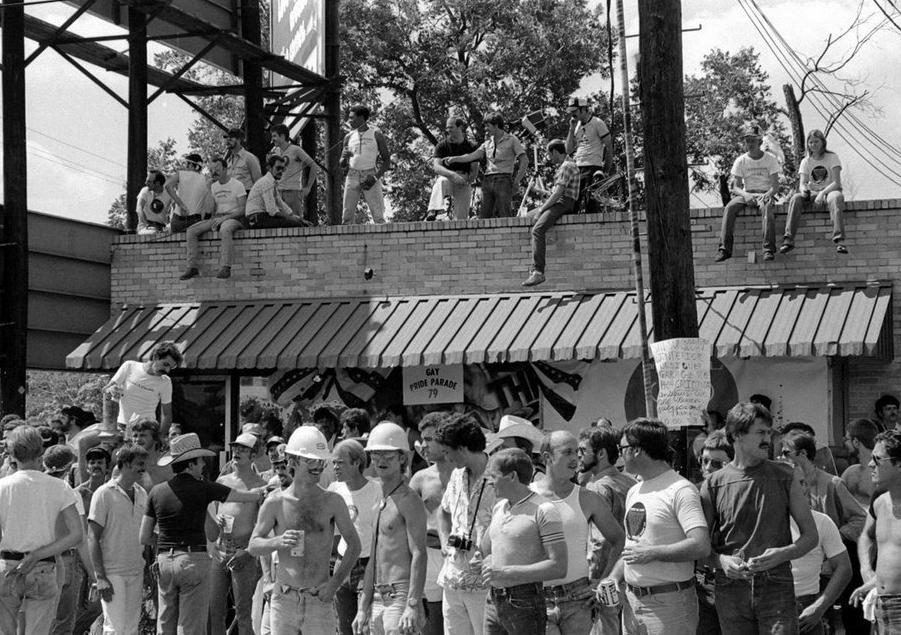
Mary’s Naturally
Mary’s Bar
At the corner of Waugh and Westheimer sits a popular coffee shop. The building is squatty and old, and the coffee is wildly popular among the caffeine aficionados and younger crowd of the inner city. While queued up to order your brew, there is only a single hint to the location’s storied history.
Below your feet, near the wall opposite the counter, is a pink triangle embedded in the slate gray concrete flooring.
From the early 1970s to 2011, long before it was a coffee bar, the site was occupied by one of the most notorious gay bars in the country, Mary’s, Naturally. The Montrose favorite stood out among the rest with rotating bawdy murals by Scott Swoveland on the side of the building, like the famous interior scene featuring caricatures of real patrons and even the bar cat, Mr. Balls, perched on a stool.
“When I first came out [in the early 1970s], Mary’s was the hot place to go for happy hours, especially on Sunday afternoons,” says Don Gill, longtime Mary’s, Naturally patron and reveler. “It was very crowded. [The atmosphere] was ‘Levi’s and leather’; no cologne or jewelry. It was that kind of crowd.”
The all-in-good-fun nature of the bar made it a staple for Houston’s LGBTQ+ community and passers through alike. Police raids became a regular occurrence; in one instance over 60 were arrested in a single night for the crime of finding community. The patrons at Mary’s began to anticipate and participate in the raids because they were predictable—they always came just before Pride.
Historian JD Doyle adds, “The bar and its management were very supportive of the community. It allowed some clubs to have organizing meetings there. Andy Mills, manager from 1976 to 1985, was also founder and director of the Montrose Singers and Montrose Symphonic Band, which morphed into the Gay Men’s Chorus and Houston Pride Band.”
When the AIDS crisis hit Houston in the early 1980s, Mary’s became a natural community gathering place for the mourning. In the climate of the time, many gay men lost to the crisis were abandoned by their families, left to be mourned by their chosen families instead. To compound the issue, some funeral homes refused the bodies of gay men lost to AIDS. Over the coming years, the Mary’s Outback became the site of countless memorial services by friends of loved ones lost to the virus. While the lore suggests that some men may have been buried at the site, the former owners of Mary’s denied it. But every tall tale is risen from a grain of truth: there were countless ashes spread or buried at the Outback.
“I lost my brothers and cousins to HIV and AIDS,” Gill says. “Lady Victoria Lust, who was an icon in fundraising, had a charity and when she died, she left it to me to run. Mary’s opened their arms to fundraisers like my self to raise funds for the less fortunate. They were the first location for our office when we put together PWA Holiday Charities. They allowed constant fundraisers, one right after the other, on their patio.”
“I personally dug and buried the ashes of Lady Victoria Lust,” Gill remembers. “We buried her ashes and planted a lavender tree. A lot of [people’s ashes] were buried or spread there.”
“The gay women who went to Mary’s just bent over backward to help the gay men who were ill,” Gill continues. “If you needed someone to go to the store for you, just call one of them and she’d be there. Some volunteered to visit someone’s house to clean, or go over every morning to walk their dogs. They did the same thing that a sibling would do for a relative.” After the advent of protease inhibitors in 1996, the death toll began to decline. While even in 2021 we’ve not beaten the HIV epidemic, the tide had begun to turn. Mary’s remained a storied institution in the community, but saw fewer and fewer memorial services as time went on.
“Throughout the nineties, a lot of the bars slowed down,” Gill says. “With the internet, you could go online, so why go to a bar? As with any gay bar, business slowed.” And so it was written.
Though physically lost to time, Mary’s lives on through stories kept alive like Gill’s, through archives on HoustonLGBTHistory.org, and with hints of her former self left behind like the triangle on the floor of the coffee shop.

Pride Houston revelers on the roof and along the front patio of Mary’s, Naturally in 1979. Photo courtesy the JD Doyle Archives.
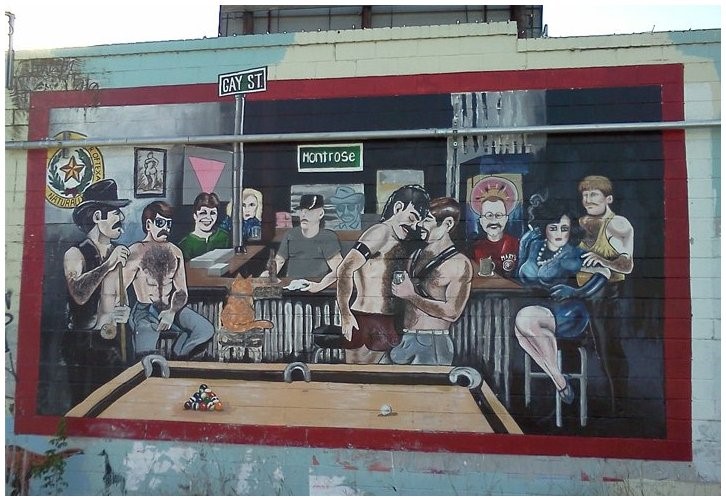
An iconic mural on the side of Mary’s, Naturally by artist Scott Swoveland. Photo courtesy the JD Doyle Archives.
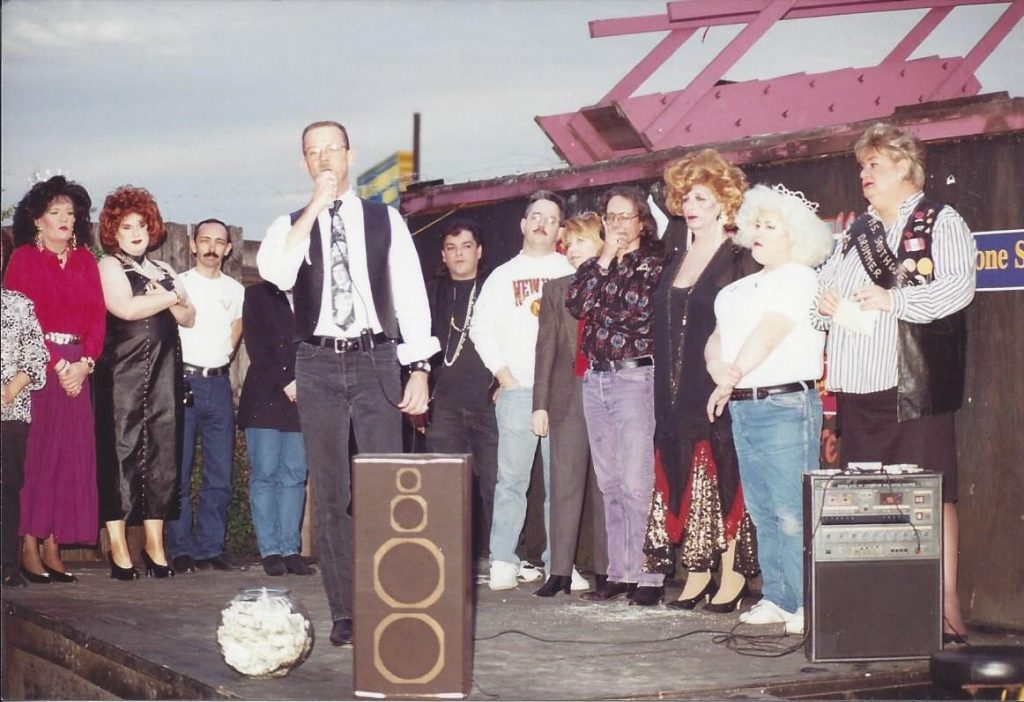
Don Gill running for Mr. Prince Choice in January 1993 at Mary’s, Naturally, speaking at the fundraiser River of Dreams, benefitting Stone Soup and the Names Project. Photo courtesy Don Gill.
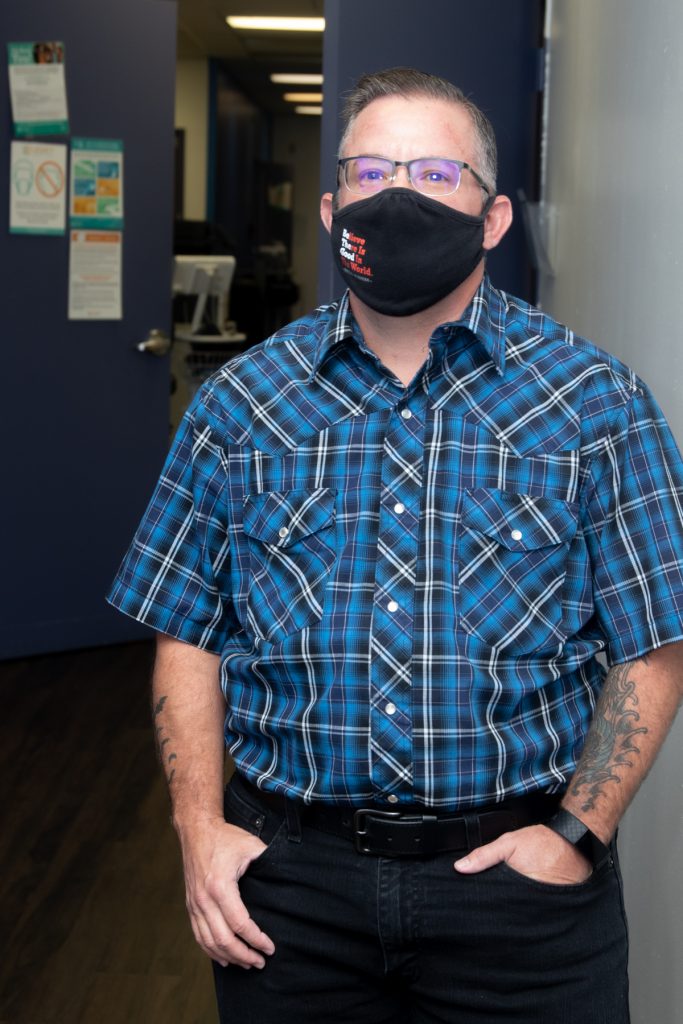
Tony Arliss Smith
Gender Care Patient
Tony Arliss Smith
All his life, Tony Arliss Smith knew he was not the person the people in his life expected him to grow up to be. He didn’t understand why he couldn’t dress in “boy clothes” or why he had to wear a bathing suit instead of swimming trunks. After finding himself struggling with substance use to cope with the vitriol of the people in his life who shamed him for his identity, he found hope at Legacy Community Health.
Tony Arliss Smith was just a little boy from Kirbyville, Texas. A stone’s throw from the Louisiana border and an hour’s drive to Beaumont – the nearest “big” town. Smith was assigned female at birth, but he knew from an early age that this was incorrect. Someone, somewhere had made a mistake – he didn’t like dresses, petit shoes, and bathing suits. He much preferred swimming trunks, shorts, and tees. Some adults may have called him a “tomboy”, but Smith knew it reached far beyond that.
The struggle began early. He couldn’t understand why the adults in his life not only kept him from the traditionally masculine things he enjoyed, but shamed him to enjoying them. This was the first step down a difficult road for Smith, who believed the words of his elders. “I believed what the adults told me: that my very being was a sin, that who I was, was shameful and needed to be corrected,” Smith said. “With few coping skills and no understanding for the way I felt, I desperately searched for ways to escape. By age eleven I began having suicidal thoughts, which I tried to numb with substances.”
Over his teen years, Smith attempted to fit in with girls his age through sports leagues, therapy, religion, and relationships. These attempts only reinforced what he knew to be true, further alienating him from his community. With no outside support and no way to properly vocalize what he was experiencing, he fell deeper into his depression.
That is until he discovered Legacy Community Health. As a young adult in East Texas, he began seeking health care at Legacy Beaumont, a support system he calls “lifesaving”. “I built a life for myself filled with people who truly supported me,” Smith said. “I was even able to attend college and obtain a degree. But there was always something not quite right, something I just couldn’t identify.”
Smith was 35 when he began accessing his lifesaving gender care at Legacy Beaumont. “It was exactly the right time, exactly the right place, and most importantly, exactly the right people. My story is about what can happen when a person gets the support they need, the support they deserve.”
Smith has since become a social worker himself, helping thousands of families, individuals, and caregivers, giving back to the community that saved him and becoming part of the change for others.
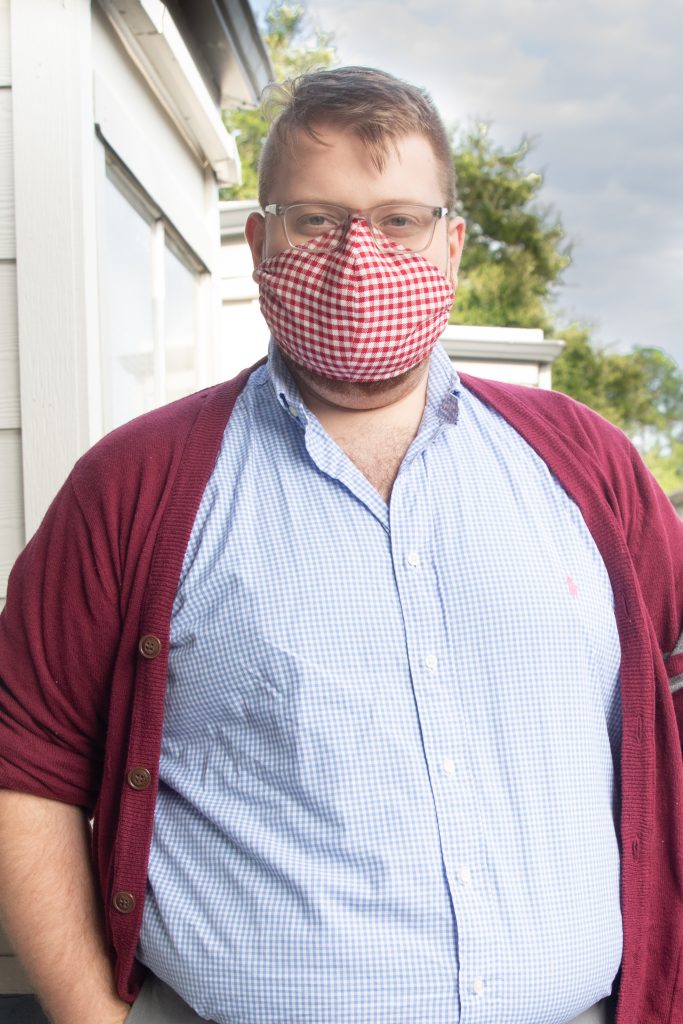
Chaz Corder
Same Day PrEP Patient
Legacy Montrose Clinic
Chaz Corder

Chaz Corder is an opera singer, a vocal coach, a drag queen, a teacher, and is employed at a church. To say that Corder’s life is on the move would be an understatement. In order to care for his sexual health, he searched for a clinic that could offer competent care for LGBTQ+ individuals in an environment that is stigma-free and empowering. He found Legacy Community Health.
Any given day on Chaz Corder’s schedule is packed to the brim with activities. From work to play to volunteering, Corder keeps busy. This is no secret to his vocal coaching students, his church peers, or the fans of his drag queen alter ego, Sutton-Leigh Seymour.
For someone with such a busy schedule, it was imperative to Corder that he find a provider that could see him in and out the door quickly. As a member of the LGBTQ+ community, he was also concerned with finding a facility that could provide competent care, or the ability for a provider to understand and cater to your culture and health in a capable manner. This was doubly important for Corder while he searched for a provider to prescribe him PrEP, or pre-exposure prophylaxis, a once-daily pill that you can take to prevent HIV.
A Google search landed Corder on the steps of Legacy Community Health in Montrose, where he could access same-day PrEP – a service that checked all the boxes – quick, competent, and judgement-free.
“I’m a very public person,” Corder says. “I advocate for things that matter, such as getting PrEP into the hands of vulnerable populations. Same-day PrEP can do that. I actually set aside more time than I needed for the appointment. I thought I would be there for an afternoon, but I was in and out – walking out the door with PrEP in-hand – in just about two hours.”
“Taking charge of your sexual health is important,” Corder continues. “Stigma be damned. This is your health and you should own it.”
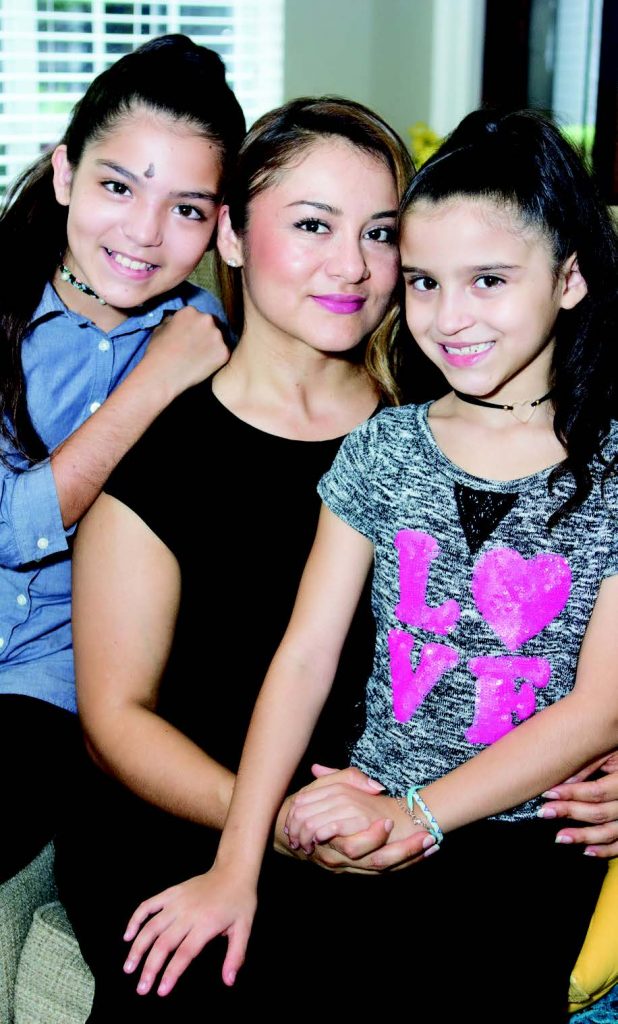
Casey Lara
School-Based Health Care Patient
KIPP Sharp
Casey, Diana and Leslie
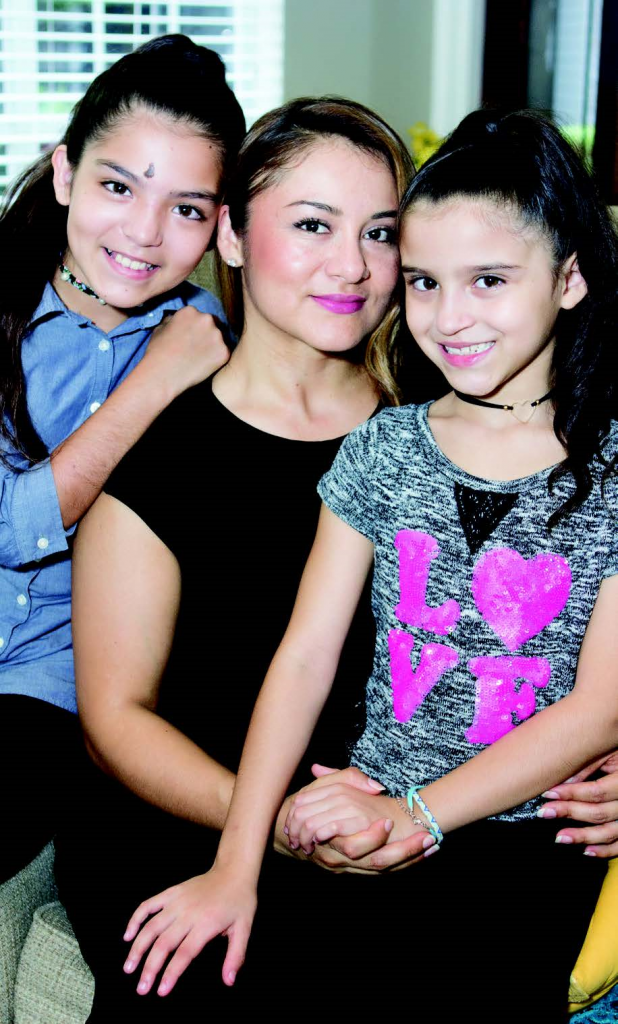
Three years ago, emergency room visits were a frequent occurrence for eight-year-old Casey and her mom, Diana. Casey’s asthma was out of control and she was constantly sick.
Although Diana had moved from Katy to Southwest Houston, she was still commuting to the outlying suburb for her daughter’s doctor’s appointments — adding inconvenience to an already troubling health issue. Once her daughter entered the neighboring KIPP SHARP elementary school, however, everything changed.
Casey began seeing nurse practitioner Ashley Pineda at Legacy’s clinic in the school and gained control of her asthma. Diana’s other daughter, 11-year-old Leslie, also began seeing Pineda for severe allergies and improved.
“Having the clinic at the school was such a blessing for me,” says Diana, a divorced, single mom of two. “My daughters love them. It makes me happy to know there’s someone there at the school with them, so I don’t have to leave work when they’re sick.” Diana’s been so impressed with her daughter’s improvements that she’s made Legacy their medical home.
For parents like Diana who operate on a tight budget, the health services are, literally, a life saver. “Because of Legacy, we haven’t been to an emergency room in a long time,” she says. “There’s nothing more important than having a healthy child.”
Change this to anything
Lorem ipsum dolor sit amet, consectetuer adipiscing elit, sed diam nonummy nibh euismod tincidunt ut laoreet dolore magna aliquam erat volutpat.
Click me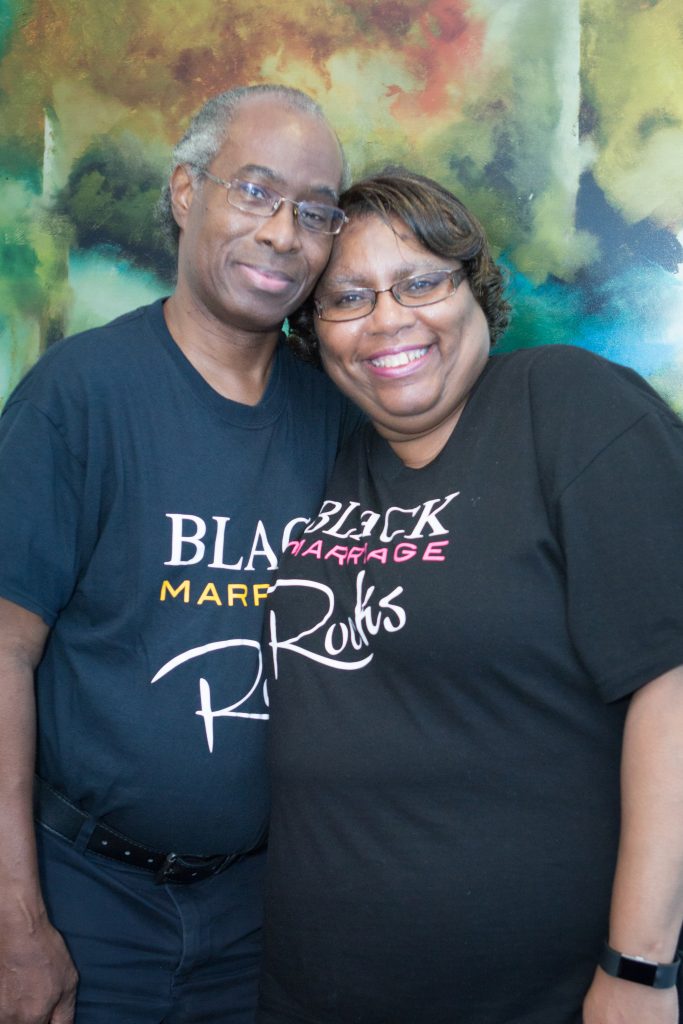
KALVIN & EUNICE MARSHALL
LEGACY POP ADVOCATES & COUPLE LIVING WITH HIV
Kalvin & Eunice Marshall
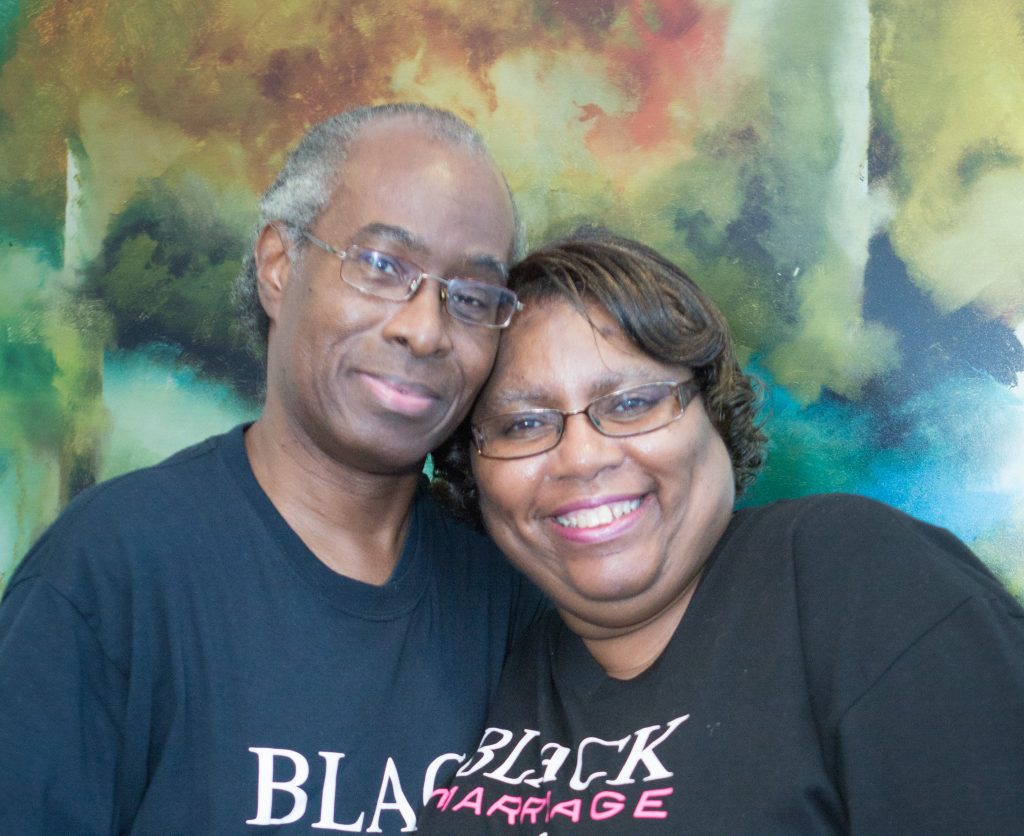
“I don’t have HIV, I’m not gay,” said Kalvin Marshall, in 2007, as he got the news that he was living with HIV. But he did, and so did his wife Eunice.
They decided right then that, if they weren’t dead in a year, they would spread the word that HIV wasn’t a gay-only disease. They would be the face of a straight couple living with HIV. Now, almost 15 years later, they’re alive and keeping their promise.?
Every third Thursday of the month, Kalvin and Eunice share their story in the lobby of Legacy’s Montrose clinic. The Marshalls are members of Legacy’s Positive Organization Project (POP+), an advocacy training program designed by and for people living with HIV/AIDS.
At the time of their diagnosis, they didn’t know HIV actually wasn’t a death sentence. They were given no guidance or information on the disease, which is what drives the passionate couple in their advocacy today.
Eunice believes, because her husband’s not gay doctors initially missed his diagnosis. “He was shuffled to a lot of different doctors — a neurologist, oncologist and an endocrinologist — for six months before being diagnosed,” she says. It was only after being admitted to the hospital – his kidneys were shutting down – that he received an HIV diagnosis.
That was 2007 and while progress has been made in the treatment and prevention of the virus, there’s still much more work to do, stigmas to erase.
“HIV doesn’t discriminate — whether you’re rich, poor, black, white, gay, bisexual,?heterosexual?or transgender. Your sexual orientation doesn’t put you at risk. ?Having unprotected sex and not knowing your status does,” says Eunice.
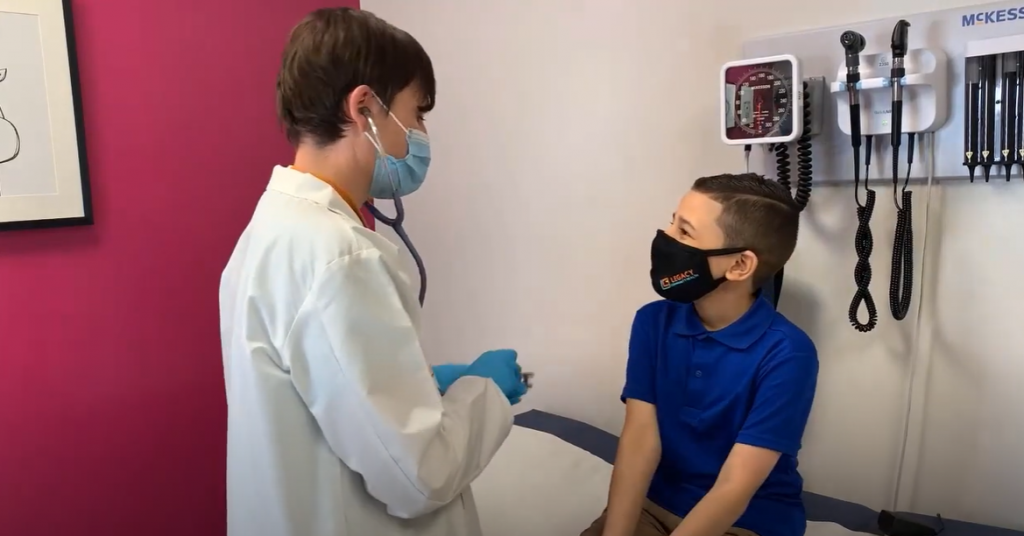
LEGACY SCHOOL-BASED HEALTH CARE
Legacy’s School-Based Health Care
Nine years ago, Legacy partnered with KIPP schools to open the first of its school-based health clinics, launching a bold initiative to provide affordable and accessible pediatric services to students right on campus. Today, Legacy has more than 100 staff members across 33 school-based clinics at KIPP, YES Prep, and Galena Park campuses offering primary and behavioral health care to students and their siblings.
“We’ve become their primary care providers, and in turn the medical homes for their families,” says Dr. Teandra Gordon, Legacy’s Vice President of School-Based Health. “Parents don’t have to take time off of work to take their children to medical appointments. Because of the access that comes with being right there on campus, we can provide high-quality, comprehensive care.”
Students are treated for high fevers, ear aches, or sore throats, and our nurse practitioners prescribe medications and monitor chronic conditions like asthma, diabetes, or obesity. Parents may also schedule well-child visits for students and their siblings. In addition, providers who observe behavioral issues, family conflicts, or learning difficulties can also schedule therapy appointments at the clinic.
“Our motto is ‘To learn well, you must be well,’” says Dr. Gordon. “We want to help students stay healthy and in school, growing strong in body and mind.”
By putting health care providers on campus, students spend more time in class, parents miss fewer hours at work and health conditions are less likely to go untreated. The existence of such clinics takes a tremendous weight off parents’ shoulders, giving them assurance, their children have just as much a right to health care as any other child and lays the foundation for positive health outcomes.
KIPP Texas-Houston has 34 tuition-free schools educating close to 16,000 students from educationally underserved communities and is part of the KIPP Texas network of more than 55 pre-K-12 schools with 29,000 students across Austin, Dallas-Fort Worth, Houston, and San Antonio.
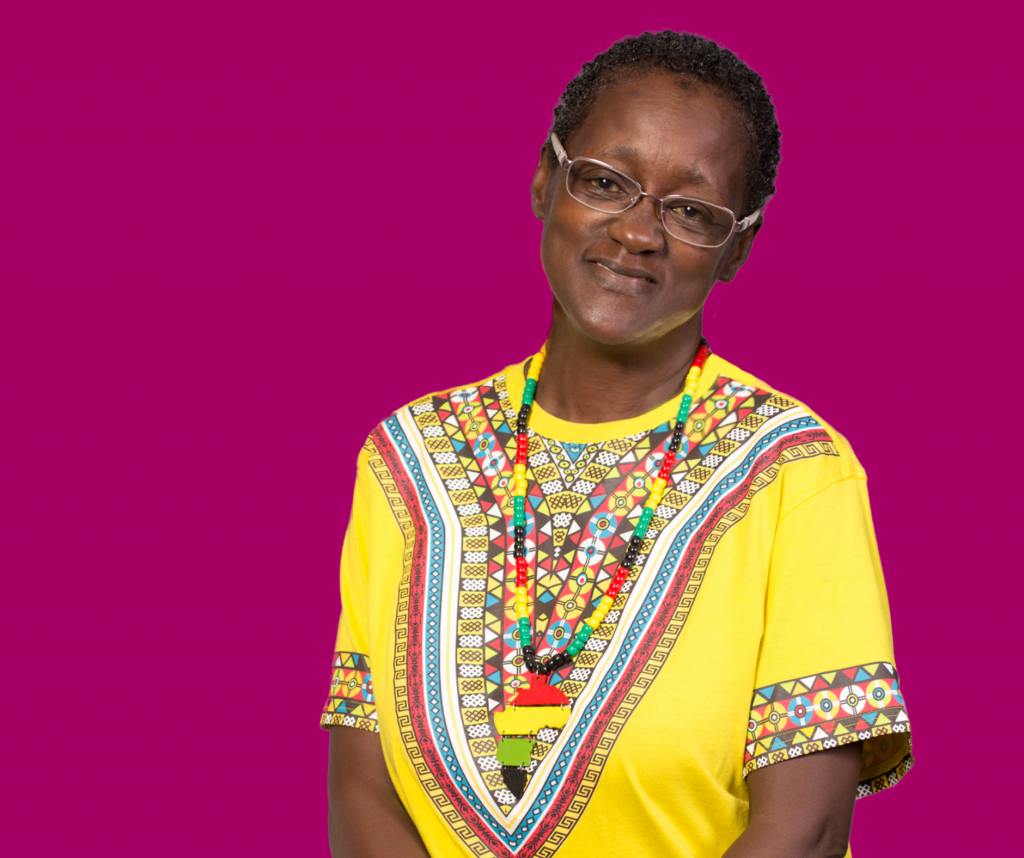
LYDIA ARNOLD
hiv pATIENT
lEGACY mONTROSE cLINIC
Lydia Arnold

Diagnosed with HIV at the height of the crisis, Lydia searched for a place to belong. At Legacy – then the Montrose Clinic – she found community, care, and fellowship through the many programs the volunteer clinic offered. Over 20 years later, she’s still with Legacy and considers herself a better advocate because of it.
It was 1995. HIV diagnoses in the United States were at an all-time high. The focus of the epidemic was on gay white men, who at the time accounted for the majority of diagnoses. For Lydia, the diagnosis came as a shock. As an African American woman, how could that happen?
She knew of this little HIV clinic here in Houston. A small, volunteer-run operation that had its origins in the gay male community, but were treating HIV as best they could regardless of who had it. She wanted community – to know she’s not alone. She began taking one-on-one HIV classes, group HIV classes and joined the POP+ program.
“They taught me about how to be an advocate,” she says. “I loved it because afterward I could go out and talk to people about what’s important; about getting tested . . . I was able to learn how to go out into the community – to my church – and talk to people about HIV.”
As time progressed, the shift in diagnoses would adjust from gay white men to African American men, with African American women accounting for the most affected demographic of women in the nation. Through her time with Legacy, Lydia was prepared for the shift and acts as an advocate for a silent majority of people living with HIV in Houston.
Check back soon for more stories
Frank Campisi – Legacy Ambassador and Former Board Member
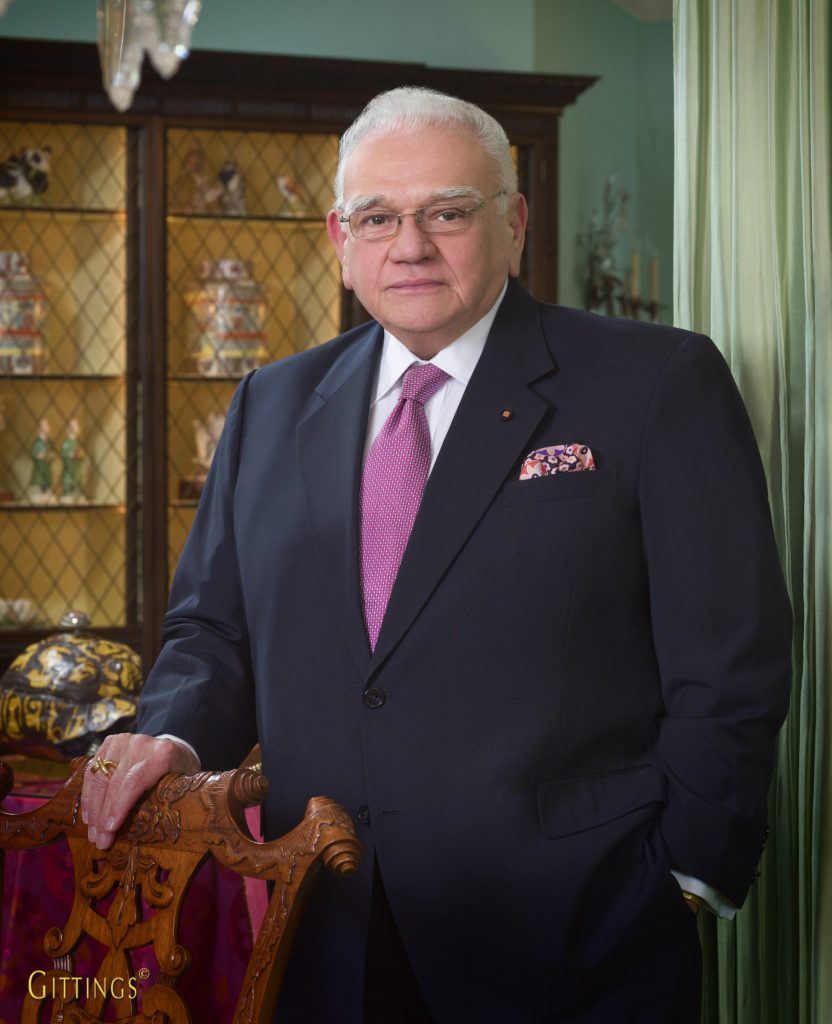
The success of Legacy Community Health – known as the Montrose Clinic when it opened in 1981 – depended on dedicated volunteers and fundraisers like Frank Campisi. Frank solicited funds early on to keep the Montrose Clinic’s doors open during trying times. With the HIV pandemic draining the organization’s resources, Frank helped secure the donation of special medical equipment and supplies that maintained the prospect of hope for HIV positive Houstonians. In 1991, Frank and Monte Frost co-hosted a luncheon for Dr. Anthony Fauci, Director of the National Institute of Allergy and Infectious Diseases. On that day, Dr. Fauci announced his latest research on protease inhibitors, which would eventually keep HIV positive patients alive and gave the entire community increased hope for finding a cure.
Frank served on the Montrose Clinic’s Board of Directors for 11 years, retiring as Vice-Chairman in 1999. In 2010, Legacy awarded him the Living Legacy Award for his dedication to the organization and his commitment to the people we serve. At 81 years of age, Frank returned to Legacy in 2011, taking on the role of the Development Department’s Ambassador at the Montrose location. He truly loved his job and had a special connection to the entire Legacy community.
Frank passed away peacefully in July 2021. Those who had the pleasure of knowing Frank were truly blessed. His personality was infectious, his heart was big enough to love unconditionally, and his mind was open enough to embrace the differences that make each of us unique.
